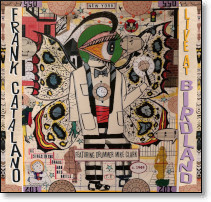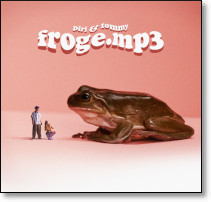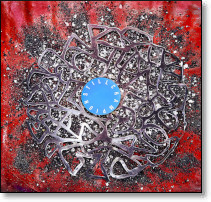Latest
2025
Jan
2024
Dec
Nov
Oct
Sep
Aug
Jul
Jun
May
Apr
Mar
Feb
Jan
2023
Dec
Nov
Oct
Sep
Aug
Jul
Jun
May
Apr
Mar
Feb
Jan
2022
Dec
Nov
Oct
Sep
Aug
Jul
Jun
May
Apr
Mar
Feb
Jan
2021
Dec
Nov
Oct
Sep
Aug
Jul
Jun
May
Apr
Mar
Feb
Jan
2020
Dec
Nov
Oct
Sep
Aug
Jul
Jun
May
Apr
Mar
Feb
Jan
2019
Dec
Nov
Oct
Sep
Aug
Jul
Jun
May
Apr
Mar
Feb
Jan
2018
Dec
Nov
Oct
Sep
Aug
Jul
Jun
May
Apr
Mar
Feb
Jan
2017
Dec
Nov
Oct
Sep
Aug
Jul
Jun
May
Apr
Mar
Feb
Jan
2016
Dec
Nov
Oct
Sep
Aug
Jul
Jun
May
Apr
Mar
Feb
Jan
2015
Dec
Nov
Oct
Sep
Aug
Jul
Jun
May
Apr
Mar
Feb
Jan
2014
Dec
Nov
Oct
Sep
Aug
Jul
Jun
May
Apr
Mar
Feb
Jan
2013
Dec
Nov
Oct
Sep
Aug
Jul
Jun
May
Apr
Mar
Feb
Jan
2012
Dec
Nov
Oct
Sep
Aug
Jul
Jun
May
Apr
Mar
Feb
Jan
2011
Dec
Nov
Oct
Sep
Aug
Jul
Jun
May
Apr
Mar
Feb
Jan
2010
Dec
Nov
Oct
Sep
Aug
Jul
Jun
May
Apr
Mar
Feb
Jan
2009
Dec
Nov
Oct
Sep
Aug
Jul
Jun
May
Apr
Mar
Feb
Jan
2008
Dec
Nov
Oct
Sep
Aug
Jul
Jun
May
Apr
Mar
Feb
Jan
2007
Dec
Nov
Oct
Sep
Aug
Jul
Jun
May
Apr
Mar
Feb
Jan
2006
Dec
Nov
Oct
Sep
Aug
Jul
Jun
May
Apr
Mar
Feb
Jan
2005
Dec
Nov
Oct
Sep
Aug
Jul
Jun
May
Apr
Mar
Feb
Jan
2004
Dec
Nov
Oct
Sep
Aug
Jul
Jun
May
Apr
Mar
Feb
Jan
2003
Dec
Nov
Oct
Sep
Aug
Jul
Jun
May
Apr
Mar
Feb
Jan
2002
Dec
Nov
Oct
Sep
Aug
Jul
Jun
May
Apr
Mar
Feb
Jan
2001
Dec
Oct
Sep
Aug
Jul
Jun
May
Apr
Mar
Feb
Monday, November 28, 2022
Music Week
 |
 |
 |
 |
 |
 |
 |
Expanded blog post, November archive (final).
Tweet: Music Week: 43 albums, 7 A-list,
Music: Current count 39159 [39116] rated (+43), 33 [33] unrated (+0: 5 new, 28 old).
First half last week I spent thinking about cooking a little something for Thanksgiving dinner. We wound up with five people. I bought a pound of ground turkey and two of hamburger. I mixed the former with chopped spinach and feta cheese, and added a little butter and garlic powder to both. The idea was to cook them on the little-used gas grill, but it didn't heat up, so my fallback was frying pans indoors. They both came out very well done, but with a lot of tasty brown. Topped them with smoked gouda and havarti, and had bacon, red onion, and pickles to add. Sides were baked beans (topped with bacon), Russian potato salad (with olives, red onion, smoked salmon, and dill), and Spanish slaw (with carrots, red bell pepper, and golden raisins). Had spice cake for dessert, with store-bought butter pecan ice cream. I'm learning to settle for relatively simple dishes that don't kill me. Not quite as good as the birthday dinner, but fit the bill, and didn't leave us with a lot of leftovers.
Second half of the week felt like a void. I finally opened up a file for Speaking of Which, figuring I'd just copy down a few links for future reference -- sort of a placeholder, with few if any comments. But on Sunday I made the rounds, and often couldn't help but write something. Rarely as much as I could, but this sort of analysis is all but second nature these days.
One nice thing about the meal was that I got a chance to talk shop with my nephew. He's been using some kind of AI software to generate images. I had a fairly serious interest in AI back in the 1980s, but haven't followed it much since then. Still, I have some ideas about what it might be good for and where it might cause more trouble than it's worth, so it was good to compare my thoughts with his actual experience.
[PS: I added a link to yesterday's post, as part of Vox's "World to Come" series: AI experts are increasingly afraid of what they're creating. Just a thought, but if you got rid of patents and copyright for AI code, and required that all code be open source, that would slow down the pace of development, and make it harder to hide harmful applications. I also added a link to another No More Mister Nice Blog piece, about how Mike Pompeo rates the head of a teacher's union as "the most dangerous person on the planet."]
A couple notes on the 17th Annual Jazz Critics Poll: Francis Davis asked to be kept informed of the voting, so I've been forwarding mail to him. I also broached the possibility of including his name on the masthead, and he said he'd be honored. I have 26 ballots counted so far, with two more weeks until deadline. I haven't had much time to go back over possible voter lists, but I'll try to do that over the next few days. The most striking thing so far is that the vote is exceptionally scattered: three albums appear on six ballots each, so 23% of the total. This compares to 2021, when James Brandon Lewis appeared on 34% of the ballots, and to 2020, when Maria Schneider scored 36%. Still early days. As I recall, there were six other leaders last year before Lewis finally broke from the pack.
I've done the basic indexing for November Streamnotes, but still have the Music Weeks to compile. I've also fallen behind on the EOY Aggregate, but that's largely because the number of EOY lists doubled today. (Pro tip: I mostly use the lists collected by Album of the Year and Acclaimed Music Forums.) I want to settle on a jazz ballot by Friday. This is what my 2022 list currently looks like. No way will I have time to resample everything on it, so I'm stuck with my memory and spot checks. I did replay Omri Ziegele today, and dropped it a tiny bit -- probably the vocals, as almost everything else is marvelous.
The EOY file has traditionally included a "2%" list of records I haven't heard but think might be worth looking for. This year I've significantly expanded that list to include everything that's gotten Jazz Critics Poll votes, even if I'd put their odds of hitting A- at much less than 2%. I may thin them out later, or just revise the explanation.
A couple quick notes on the music. The Paul Smoker albums are actually remastered digital-only, so the label arguably should be to the reissue, if only there was one. In general, when I stream an album that matches an original release, I attribute it to the original label, instead of the reissue label. I have no qualms about that with streaming services, but it may be a bit unfair in this case.
I've also resurrected "Limited Sampling" this week. I really wanted to hear the Dick Hyman album, but could only find fragments. I expect there will be more of these in the next few weeks. In most cases so far, they're possibly good albums that Bandcamp only has a couple tracks from. However, in the future, I may start including records that are fully available but I hit reject on. Similarly, limited sampling could mean something I've only heard a YouTube or Soundcloud single from. I don't count these as graded albums, but they do show up as heard in the EOY aggregate, with +/- notes.
New records reviewed this week:
- Arctic Monkeys: The Car (2022, Domino): [sp]: B-
- Simon Belelty: Pee Wee (2020 [2022], Jojo): [cd]: B+(**)
- Wolfert Brederode: Ruins and Remains (2021 [2022], ECM): [sp]: B+(**)
- Sarah Elizabeth Charles: Blank Canvas (2022, Stretch/Ropeadope): [cd]: B+(*)
- The Chicago Plan [Gebhard Ullmann/Steve Swell/Fred Lonberg-Holm/Michael Zerang]: For New Zealand (2019 [2022], Not Two): [cd]: B+(***)
- The Clarinet Trio: Transformations and Further Passages (2021 [2022], Leo): [cd]: B+(***)
- Louis Cole: Quality Over Opinion (2022, Brainfeeder): [sp]: B+(*)
- Hollie Cook: Happy Hour (2022, Merge): [sp]: B+(**)
- Cooper-Moore & Stephen Gauci: Conversations Vol. 1 (2019 [2020], 577): [sp]: A-
- Craig Davis: Tone Paintings: The Music of Dodo Marmarosa (MCG Jazz) **
- Paul Dunmall Quintet: Yes Tomorrow (2021 [2022], Discus): [sp]: B+(***)
- Chad Fowler/Ivo Perelman/Zoh Amba/Matthew Shipp/William Parker/Steve Hirsh: Alien Skin (2022, Mahakala Music): [sp]: A-
- Laszlo Gardony: Close Connection (2022, Sunnyside): [cd]: B+(**) [12-02]
- Ben LaMar Gay: Certain Reveries (2022, International Anthem): [cd]: B+(***)
- Milford Graves/Jason Moran: Live at Big Ears (2018-20 [2021], Yes): [bc]: B+(***)
- Here It Is: A Tribute to Leonard Cohen (2022, Blue Note): [sp]: B
- Conrad Herwig: The Latin Side of Mingus (2022, Savant): [sp]: B+(**)
- Aubrey Johnson & Randy Ingram: Play Favorites (2022, Sunnyside): [cd]: B
- Angélique Kidjo/Ibrahim Maalouf: Queen of Sheba (2022, Mister Ibé): [sp]: B+(**)
- Sam Kirmayer: In This Moment (2021 [2022], Cellar): [sp]: B
- Lantana: Elemental (2020 [2022], Cipsela): [cd]: B+(**)
- Ramsey Lewis: The Beatles Songbook [The Saturday Salon Series: Volume One] (2020 [2022], Steele): [cd]: B+(*)
- Kirk Lightsey: Live at Smalls Jazz Club (2021 [2022], Cellar): [cd]: A-
- Charles Lloyd: Trios: Sacred Thread (2020 [2022], Blue Note): [sp]: B+(**)
- Jasmine Myra: Horizons (2022, Gondwana): [sp]: B+(*)
- Flora Purim: If You Will (2022, Strut): [sp]: B+(***)
- Hal Smith's New Orleans Night Owls: Early Hours (2021-22 [2022], self-released): [bc]: B+(**)
- Hal Smith's Jazzologists: Black Cat on the Fence (2021, self-released): [bc]: B+(**)
- Hal Smith's Jazzologists: I Scream, You Scream, Everybody Wants Ice Cream (2021, self-released): [bc]: B+(***)
- Wil Swindler's Elevenet: Space Bugs: Live in Denver (2022, OA2): [cd]: B
- The Dave Wilson Quartet: Stretching Supreme (2017-18 [2021], Dave Wilson Music): [bc]: B+(**)
- Neil Young & Crazy Horse: World Recod (2022, Reprise): [r]: B+(**)
Recent reissues, compilations, and vault discoveries:
- Elton Dean Quartet: On Italian Roads: Live at Teatro Cristallo, Milan, 1979 (1979 [2022], British Progressive Jazz): [sp]: B+(***)
- Bill Evans: Morning Glory: The 1973 Concert at the Teatro Gran Rex, Buenos Aires (1973 [2022], Resonance): [sp]: A-
- Bill Evans: Inner Spirit: The 1979 Concert at the Teatro General San Martín, Buenos Aires (1979 [2022], Resonance): [sp]: B+(***)
- Michel Petrucciani: Solo in Denmark (1990 [2022], Storyville): [sp]: B+(***)
- John Sinclair Presents: Detroit Artists Workshop: Community, Jazz and Art in the Motor City 1965-1981 (1965-81 [2022], Strut/Art Yard): [bc]: A-
Old music:
- Brian Charette: Music for Organ Sextette (2011, SteepleChase): [cdr]: B+(*)
- Jason Moran: Bangs (2016 [2017], Yes): [bc]: B+(***)
- Paul Smoker Trio: QB (1984, Alvas): [dl]: B+(***)
- Paul Smoker Trio: Mississippi River Rat (1984 [1985], Sound Aspects): [dl]: A-
- Paul Smoker Trio: Alone (1986 [1988], Sound Aspects): [dl]: A-
- Paul Smoker Trio: Come Rain or Come Shine (1988 [1989], Sound Aspects): [dl]: B+(***)
- Conway Twitty and Loretta Lynn: Lead Me On (1972, Decca): [dl]: B+(**)
Limited Sampling: Records I played parts of, but not enough to grade: -- means no interest, - not bad but not a prospect, + some chance, ++ likely prospect.
- Dick Hyman: One Step to Chicago: The Legacy of Frank Teschemacher and the Austin High Gang (1992 [2022], Rivermont): [os]: ++/li>
Unpacking: Found in the mail last week:
- Rodrigo Amado: Refraction Solo (Trost) [10-28]
- The Attic [Rodrigo Amado/Gonçalo Almeida/Onno Govaert]: Love Ghosts (NoBusiness)
- The Chicago Plan [Gebhard Ullmann/Steve Swell/Fred Lonberg-Holm/Michael Zerang]: For New Zealand (Not Two) [11-04]
- The Clarinet Trio: Transformations and Further Passages (Leo) [11-01]
- Satoko Fujii: Hyaku: One Hundred Dreams (Libra) [11-09]
- Lantana: Elemental (Cipsela) [10-16]
Sunday, November 27, 2022
Speaking of Which
Early in the week, I thought: maybe I won't have to do one of these this week. Later, I thought: well, if either of two weekly pieces I've been linking to -- Connor Echols' "Diplomacy Watch" and Jeffrey St Clair's "Roaming Charges" -- appear, I should at least include them. But it looks like they had the good sense to take the week off, even if the world didn't. Still, I have a few more pieces in tabs that I figured I should note now rather than save for next week. Then a quick round of the usual sources, and I'm close to a typical week's work.
Ukraine: The war grinds on. Connor Echols skipped his usual "Diplomacy Watch" this week, but I'm not aware that he had much to write about.
Yehonatan Abramson/Dean Dulay/Anil Menon/Pauline Jones: [11-25] Why are Germans losing enthusiasm for helping Ukraine? It's not just about energy costs, our research finds. Germans have a deep cultural aversion toward military intervention."
Fred Kaplan: [11-21] Where Realpolitik Went Wrong: This is a devastating critique of several interviews John Mearsheimer has given about the Ukraine War. Just this week, I looked over the latest and decided it wasn't worth citing here. I've long given Mearsheimer credit for being one of the few foreign policy mandarins to recognize the corrosive effects of The Israel Lobby, but I've mostly followed his "realist" stance through his co-author, Stephen Walt, and found it lacking even if not nearly as bad as the neocon ideologues both usefully criticize. Still, Mearsheimer seems so committed to the inevitabilities of great power rivalry that he thinks the US should drop Ukraine to cultivate Russia as a potential ally for an inevitable war with China. That's not just dangerous and immoral, it's down right stupid.
Eric Levitz: [11-22] Should Ukraine Give Peace Talks a Chance? Raises six questions, which he doesn't have very good answers to:
- What are Ukraine's odds of making further territorial gains?
- How interested is Putin in peace?
- How large are the humanitarian costs of appeasing Putin?
- How can Ukraine's future security be preserved?
- How much more economic damage will Ukraine suffer from a prolonged war?
- How likely is Putin to respond to total defeat by deploying nuclear weapons?
Come to think of it, the questions aren't very good either. The only tangible one is territory, but as long as neither side is able to dictate peace, it's hard to see much value in the possible exchanges of territory: Ukraine might still gain a bit, but nowhere near enough to satisfy their victory goals; similarly, Russia could mount a new offensive, but recent losses suggest they are already overextended. At this point, the only possible agreement on territory is to let the people who live there (or used to live there before the war) vote, and trust the vote to decide. The third point is poisoned by "appeasing," especially with no account of the human costs of continued war.
The answer to number four is: when Russia no longer sees Ukraine and its alliances, which are significantly deeper now than they were before the March invasion, as a threat. That may require a "leap of faith" Putin is incapable of, but it certainly won't be achieved by integrating Ukraine into NATO. Nor does it seem likely that the US and its allies are going to be making any "leaps of faith" either. One paradox of the war is that it seems to validate the core assumptions of NATO (that Russia is a threat to neighboring parts of Europe) while at the same time proving that the logic of deterrence is itself destabilizing and perilous.
Nicolai Petro: [11-25] The tragedy of Crimea: "A history of the region's difficult relationship with Ukrainian rule before 2014 shows why Kyiv's attempt to retake it would be difficult. There are a few things here even I wasn't aware of, helping explain why Crimea revolted in 2014 even before Russia intervened.
Robert Wright: [11-23] What was Zelensky thinking? "Last week's false claim about a missile strike in Poland carries two important lessons." Unfortunately, the article cuts off before getting to the meat of the argument, but the two lessons are: "interests can differ among allies" and "the picture we're getting of this war isn't wholly unreliable." It may be possible to portray Zelensky's initial claim that missiles landing on Poland was a Russian escalation to directly attack a NATO member, and more generally that Zelensky's statements that no negotiation is possible until Russia withdraws from all Ukrainian territory (even Crimea) reveal him to be a fanatical warmonger. But it makes more sense to accept that, as Wright puts it, he "was just doing his job." That job entails not only rallying his troops to fight the Russians but also lobbying America and anyone else who'll listen to send him arms and support to carry on that fight. Sometimes that involves shameless flattery, as when he quoted Churchill to the UK Parliament, and sometimes the distortions aren't exactly true. Sometimes he feels the need to stand up as a tough guy, and sometimes he he stresses how vulnerable Ukraine is. And sometimes what he says in public isn't the same thing he's saying in private, although even there it probably depends on who he's saying it to. It's a difficult balancing act, and actually he's proven remarkably skillful at it, but you do need to keep several things in mind: his interests aren't necessarily the same as those of his countrymen, and neither are more than incidentally aligned with the US and/or NATO; because his interests aren't exactly the same, he's not really a proxy (although the US could probably guide him if it's somewhere he's willing to go -- one worries that the Americans don't really know where they want to go, which makes them that much easier to take them for a ride). One should always remember that the news coming out of Ukraine is mostly filtered through the war machine, selected to make Ukrainians appear heroic and sympathetic [see examples below], and thus to rally support for them and opposition to Russia. They've been pretty successful so far, but I worry the distortions will make it harder to actually settle the war.
Example stories, these from the Washington Post (I'm not saying that these are untrue, but there aren't many counterexamples):
- Russian bombs batter Kherson suburb in shadow of destroyed bridge
- Near Kherson, orphanage staff hid Ukrainian children from Russian occupiers
- No electricity, heat or running water after weeks of Russian bombing
- Ukrainians remember suffering inflicted by Stalin, Putin 90 years apart
- Western sanctions catch up with Russia's wartime economy
- The short life of baby Serhii, killed in a Ukraine maternity ward: This week's top tear-jerker (remember the incubators in Kuwait City?).
Jacqueline Alemany/Josh Dawsey/Carol D Leonnig: [11-23] Jan. 6 panel staffers angry at Cheney for focusing so much of report on Trump: "15 former and current staffers expressed concern that important findings unrelated to Trump will not become available to the American public."
Kate Aronoff: [11-18] Effective Altruism Is Bunk, Crypto Is Bad for the Planet, and Other Basic Truths of the FTX Crash: "The overarching lesson of sam Bankman-Fried's downfall is that the gauzy philosophical natterings of CEOs are just meant to distract us from their real goal: accumulating cash without interference."
Zack Beauchamp: [11-22] How the right's radical thinkers are coping with the midterms: "The New Right emerged to theorize Trumpism's rise. Can they explain its defeat?" They mostly seem to be doubling down on the idea that the "left" secretly controls many critical institutions in America, making it all but impossible to "save America" by through democratic processes. One even urges the American right to emulate the Taliban: "The Mujahideen fighters who brought the Soviets to their knees in Afghanistan were outmanned and outgunned. And yet they removed the godless occupiers from their land." This is wrong on more levels than I can count, but illustrates the growing paranoia and attendant recklessness of what passes for thought on the far right.
Geoffrey A Fowler: [11-23] It's not your imagination: Shopping on Amazon has gotten worse: "Everything on Amazon is becoming an ad."
Graham Gallagher: [11-25] Elite Conservatives Have Taken an Awfully Weird Turn.
Forrest Hylton: [11-25] A Historian in History: Staughton Lynd (1929-2022).
Eric Levitz: [11-25] One Worrying Sign for Democrats in the Midterm Results: "The gubernatorial elections in Georgia and Ohio suggest that a right-wing Republican could win moderate voters in 2024 merely by not being Trump." A big part of the problem is that Democrats tend to focus on the "MAGA fringe" and ignore the fundamental truth: that virtually all Republicans share the same set of far-right policy preferences.
Dylan Matthews: [11-22] How one man quietly stitched the American safety net over four decades: On Robert Greenstein, who founded the Center on Budget and Policy Priorities in 1981. The safety net they came up with is a hodge-podge of often unclear and inadequate programs which nonetheless add up to significant help against poverty. This is part of a Vox Highlight series on The world to come, which also includes:
Kevin Carey: [11-21] The incredible shrinking future of college: This starts with a demographic decline in "college-aged" Americans, but isn't the more significant problem that we've given up on higher education as anything more than credentialism for job training? The notion that adults might wish to learn more for their own gratification, and that society might benefit from a more knowledgeable citizenry, has fallen by the wayside, and in some cases succumbed to deliberate political attack.
Kelsey Piper: [11-28] AI experts are increasingly afraid of what they're creating.
Yasmin Tayag: [11-22] Will America continue to turn away from vaccines?
Bryan Walsh: [11-21] Are 8 billion people too many -- or too few? I read Paul Ehrlich's The Population Bomb shortly after it came out in 1968, so this is a question that has long haunted me, even as history has shown the need for a more nuanced view. The alarm raised by Ehrlich, like that of Malthus in the early 19th century, faded not because population growth was throttled -- although countries that did so have seen their average wealth increase more than elsewhere -- but because it's been possible to find and utilize resources more efficiently. Still, no one (other than mad men and economists) think this trend can continue indefinitely. This continues to interest me because the Earth's carrying capacity depends a lot on social and economic organization, and because hitting resource limits can stress and even break those institutions. Many of the problems we've encountered over the last couple years -- climate disasters, supply chain issues, inflation, even the pandemic itself -- are tied to resource limits, even if only very loosely to population.
Mike McIntire: [11-26] At Protests, Guns Are Doing the Talking: "Armed Americans, often pushing a right-wing agenda, are increasingly using open-carry laws to intimidate opponents and shut down debate."
Ian Millhiser: [11-27] A Trump judge seized control of ICE, and the Supreme Court will decide whether to stop him: "Judge Drew Tipton's order in United States v. Texas is completely lawless. Thus far, the Supreme Court has given him a pass."
Prem Thakker: [11-23] Glenn Youngkin, Who Supports No Gun Control, Is Heartbroken Over Virginia Walmart Shoting; and Tori Otten: [11-23] Glenn Youngkin Blames Virginia Walmart Shooting on "Mental Health Crisis." So What's His Plan?.
Adam Weinstein: [11-23] Six reasons the Afghan government utterly collapsed during US withdrawal: "A new official watchdog report sheds light on what led to the Taliban's rapid takeover last year and implications for America's future foreign policy." The list:
- Kabul failed to recognize the U.S. would actually leave;
- the decision to exclude the Afghan government from US-Taliban talks undermined it;
- Kabul insisted that the Taliban be integrated into the Republic rather than create a new model altogether;
- the Taliban wouldn't compromise;
- former Afghan President Ashraf Ghani "governed through a highly selective, narrow circle of loyalists" (read: yes men) which destabilized the government;
- Kabul was afflicted by centralization, corruption, and a legitimacy crisis.
Given time I don't have, I could nitpick my way around these points. I suspect number 4 has less to do with inflexibility than with the fact that neither the US nor Ghani had any real popular support that needed to be recognized much less compromised with. The other points should be studied by Ukraine, lest they find themselves in a position where the US wants out and that could leave them high and dry. (That doesn't seem to be the case now, but see the Wright comment above.)
Li Zhou: [11-25] The high stakes and unique weirdness of the Georgia Senate runoff, briefly explained.
Found this on Twitter:
The Colorado shooter's dad on finding out his son murdered people: "They started telling me about the incident a shooting . . . And then I go on to find out it's a gay bar. I got scared, 'Shit, is he gay?' And he's not gay, so I said, phew . . . I am a conservative Republican."
For more, here's an article: Kelly McClure: [11-23] "I'm just glad he's not gay," says father of alleged Club Q shooter: article includes Twitter link. Also quotes the father as saying: "I praised him for violent behavior really early. I told him it works. It is instant and you'll get immediate results." It also notes that the shooter legally changed his name to distance himself from this asshole. Steve M. wrote two more pieces about this (more than the story needs, but they observe the political spin): [11-23] National Review: Don't politicize the Colorado Springs shooting. The rest of the right: Well, actually . . . and, more importantly, [11-24] Bad parents are the original stochastic terrorists [PS: He's been riffing on "stochastic terrorists" lately. For another example, see: [11-21] Republicans sound like stochastic terrorists even when they're (apparently) not trying to. The occasion here is Mike Pompeo declaring that "the most dangerous person in the world" is Randi Weingarten, head of the American Federation of Teachers.]
Also note that Steve M. continues to have his finger on the pulse of elite Republican thinking: see [11-27] Maureen Dowd's brother recites the approved GOP establishment talking opoints. Notice what's not included. In particular, he points out:
If you ever ask yourself, "What does the GOP stand for?," the answer is "The GOP stands for GOP winning elections."
I've been saying for some time now that Richard Nixon was the godfather of the Republican Party, because he taught the party that winning is the only thing that matters, and no scruples should get in your way. The reason many prominent Republicans didn't like Trump when he was running in 2016 is because they didn't think he could win. But they voted for him anyway, and when he did win, he was not only forgiven; he was their hero. That should have lasted only until he lost in 2020, but thanks to the Big Lie, his popular support kept them in check until the 2022 loss gave them an excuse to brand him a loser -- which is really the only thing that they care about, and the one thing they think might work.
However, the polls haven't caught up, in large part because rank-and-file Republicans care much less about winning than about hating the Dems and being hated in turn, which Trump still has a knack for. See: That pro-DeSantis right-wing consent won't manufacture itself.
Tuesday, November 22, 2022
Daily Log
Ian Millhiser tweeted:
I increasingly view myself as a conservative. I believe that the post-Great Society consensus in favor of liberal democracy, regulated markets, celebration of diversity, and a robust welfare state is the best form of society anyone has come up with, and should be preserved.
As a conservative, I believe that we must defend traditional American values -- such as generosity, pluralism, and fear of concentration of economic power -- against radical forces such as Donald Trump, Ron DeSantis, or the Federalist Society, which do not share these values.
In a later comment, he added:
I commented:The Democrats have largely become the Burkean conservative party, and the GOP the party of people who are angry that mainstream American values do not align with their own.
It's getting hard to name political views. First, the right attacked "liberal" so savagely most surrendered the term (and prepending "neo" didn't help anyone), then they discredted "conservative" by embracing it. But that's left it too tarnished to embrace, even ironically.
The right is stuck with "conservative" since even they see that all the other labels, including ones they invented like fascist and antisemite, are bad. And "reactionary" denies them agency, reducing their thoughts to "irritable mental gestures" (Trilling's term, never truer).
Another point is that beyond being linked to defending hierarchies, conservatism insists that the answer to current problems can be found in the even more hierarchical past. That simply isn't true, even if conserving seems like the easier argument.
Monday, November 21, 2022
Music Week
 |
 |
 |
 |
 |
 |
 |
 |
Expanded blog post, November archive (in progress).
Tweet: Music Week: 51 albums, 8 A-list,
Music: Current count 39116 [39065] rated (+51), 38 [46] unrated (-8: 10 new, 28 old).
On Thursday, I sent almost 200 invitations out to cast votes in the 17th Annual Jazz Critics Poll. Last year I wound up sending the invites out manually. I've been trying to think of a better method, and came up with two. The initial ballots I would send out using Thunderbird's Mail Merge option. For later notices and reminders, I figured I could use a GNU Mailman mailing list, using "mass subscription" to enroll people, and set up restrictions so only I can send further mail to the list. It took most of the day to figure out how to set those up, and a couple people got confused by the mail list, but it seems to be working fine now. As I'm writing this, I've gotten 46 acks back, and 10 ballots. Deadline will be end-of-day December 12. Results will be published at The Arts Fuse, and on my master website.
I'll possibly send out a few more invites this week. I haven't had much time to try to vet candidates this weekend, especially as I knocked out another Speaking of Which column. Some of this week's records are things I was pointed to by voters. I also found a Michaelangelo Matos ballot with eight records I hadn't heard, so I checked them out: liked all of the electronica, was less taken by two prog-ish pop groups (Au Suisse, Dungen).
Other news for me is that I've recently bought new keyboard, mouse, and speakers for the computer I'm typing this on. In each case the old pieces were failing: the mouse button was unreliable; the cap to one of the keyboard keys ('d') wore a hole in the middle, keeping the switch from engaging, and more keys were dropping out (especially shift states); and the right speaker was cracking up, so I had been listening to only one speaker for months (and wondering why the sound was so crap compared to the cheaper speakers on the other computer).
I went with a Logitech wireless (not Bluetooth) mouse, which is a huge improvement. I'm having more trouble adjusting to the keyboard, which is a bit disappointing give how much the Keychron Q3 cost: the brown switchers have more click than I'm used to, and the backlighting can be disorienting (presumably that and everything else is programmable, but I haven't looked up how to do that through Linux). But it's very sturdily built (weighs about 6 lbs), and the keys and mechanical switches are high quality, so I doubt they'll wear down like the Logitech keyboard did. I could wind up liking it once I get use to the feel. Speakers (Creative Labs Gigaworks T40) are pretty good, too, although I haven't used them much. (I use a second computer for streaming, but downloads land on this one, and I haven't been paying them much attention.)
Bonus is that I had to do some massive tidying up before I could install it all, which gave me lots of time to worry. That gives me a spot where I can organize the 2022 CDs I have in case I want to recheck any. Although I think the current grade sort on my jazz and non-jazz lists is good enough, I doubt that the A-list ranking is anywhere near right.
We have minimal plans for Thanksgiving, as it's always hard to round people up, and we have no particular place to go. I thought we might just grill some hamburgers and eggplant (topped with yogurt, a Turkish thing), and make baked beans, potato salad, slaw, and a spice cake. Should be warmer than last week was, and I can fob the grilling off on a guest, so that's always a treat for me.
New records reviewed this week:
- A-Trak: 10 Seconds: Volume 1 (2022, Fool's Gold, EP): [sp]: B+(***)
- A-Trak: 10 Seconds: Volume 2 (2022, Fool's Gold, EP): [sp]: B+(***)
- Adult.: Becoming Undone (2022, Dais): [sp]: B+(***)
- Franco Ambrosetti: Nora (2022, Enja): [sp]: B+(*)
- Au Suisse: Au Suisse (2022, City Slang): [sp]: B+(*)
- The Black Dog: Brutal Minimalism EP (2022, Dust Science, EP): [sp]: B+(***)
- The Black Dog: Concrete Reasoning EP (2022, Dust Science, EP): [sp]: B+(*)
- Patricia Brennan: More Touch (2022, Pyroclastic): [cd]: B+(***)
- Terri Lynne Carrington: New Standards Vol. 1 (2022, Candid): [sp]: B+(**)
- Frank Catalano: Live at Birdland (2022, Ropeadope): [sp]: A-
- Callista Clark: Real to Me: The Way I Feel (2022, Big Machine): [sp]: B+(*)
- Duduka Da Fonseca & Quarteto Universal: Yes!!! (2022, Sunnyside): [sp]: B+(**)
- Dungen: En Är För Mycket Och Tusen Aldrig Nog (2022, Mexican Summer): [sp]: B+(*)
- Joe Fahey: Baker's Cousin (2022, Rough Fish): [sp]: B+(**)
- Avram Fefer Quartet: Juba Lee (2022, Clean Feed): [cdr]: A-
- Bill Frisell: Four (2022, Blue Note): [sp]: B+(*)
- Kittin + the Hacker: Third Album (2022, Nobody's Bizzness): [sp]: B+(***)
- Laufey: Everything I Know About Love (2022, AWAL): [sp]: B+(**)
- Bill Laurance: Affinity (2022, Flint Music): [sp]: B+(*)
- Jeffrey Lewis: When That Really Old Cat Dies (2022, self-released, EP): [sp]: B+(*)
- Dana Lyn: A Point on a Slow Curve (2022, In a Circle): [sp]: B+(*)
- Jim McNeely/Frankfurt Radio Big Band: Rituals (2015 [2022], Double Moon): [sp]: B+(***)
- Abel Mireles: Amino (2022, Sunnyside): [sp]: B+(**)
- Judy Niemack: What's Love (2021 [2022], Sunnyside): [sp]: B+(***)
- Lina Nyberg Band: Anniverse (2022, Hoob): [sp]: B
- The Ostara Project: The Ostara Project (2022, Cellar): [cd]: B+(*)
- Dierk Peters: Spring (2022, Sunnyside): [sp]: B+(**)
- Zach Phillips: Goddaughters (2022, self-released): [cd]: A-
- Piri & Tommy: Froge.mp3 (2022, Polydor): [sp]: A-
- Plaid: Feorm Falorx (2022, Warp): [sp]: B+(**)
- Jana Pochop: The Astronaut (2022, self-released): [sp]: B+(**)
- Pye Corner Audio: Let's Emerge! (2022, Sonic Cathedral): [sp]: B+(**)
- Reverso: Harmonic Alchemy (2022, Outnote): [cdr]: B+(***)
- Emiliano Sampaio Jazz Symphonic Orchestra: We Have a Dream (2022, Alessa): [sp]: B+(**)
- Chad Taylor Trio: The Reel (2022, Astral Spirits): [bc]: A-
- Thumbscrew: Multicolored Midnight (2021 [2022], Cuneiform): [dl]: A-
- Dan Weiss Trio: Dedication (2020 [2022], Cygnus): [cd]: B+(**)
- Lainey Wilson: Bell Bottom Country (2022, Broken Bow): [sp]: B+(***)
Recent reissues, compilations, and vault discoveries:
- Roy Eldridge Quartet/Ella Fitzgerald Quintet: In Concert: Falkoner Centret, Copenhagen, Denmark, May 21, 1959 (1959 [2022], SteepleChase): [sp]: B+(***)
- Ella Fitzgerald: Ella at the Hollywood Bowl: The Irving Berlin Songbook (1958 [2022], Verve): [sp]: B+(***)
- Hal Galper: Ivory Forest Redux (1979 [2022], Origin): [cd]: B+(***)
- Ahmad Jamal: Emerald City Nights: Live at the Penthouse 1963-1964 (1963-64 [2022], Elemental, 2CD): [cd]: A- [12-02]
- Ahmad Jamal: Emerald City Nights: Live at the Penthouse 1965-1966 (1965-66 [2022], Elemental, 2CD): [cd]: B+(***) [12-02]
- Elvin Jones: Revival: Live at Pookie's Pub (1967 [2022], Blue Note): [sp]: B+(***)
- Dickie Landry/Lawrence Weiner: 'Having Been Built on Sand/With Another Base (Basis) in Fact (1978 [2022], Unseen Worlds): [sp]: B+(**)
- Alhaji Waziri Oshomah: World Spirituality Classics 3: The Muslim Highlife of Alhaji Waziri Oshomah (1978-84 [2022], Luaka Bop): [sp]: A-
- Esbjörn Svensson: Home.S. (2008 [2022], ACT): [cd]: B+(*)/li>
- Mototeru Takagi/Kim Dae Hwan/Choi Sun Bae: Seishin-Seido (1995 [2022], NoBusiness): [cd]: B+(**)
- Gebhard Ullmann/Steve Swell/Hilliard Greene/Barry Altschul: We're Playing in Here? (2007 [2022], NoBusiness): [cd]: B+(***)
Old music:
- Homeboy Sandman: Actual Factual Pterodactyl (2008, Boy Sand Industries): [sp]: B+(***)
- Homeboy Sandman: Chimera EP (2012, Stones Throw, EP): [sp]: B+(*)
Unpacking: Found in the mail last week:
- Simon Belelty: Pee Wee (Jojo) [10-21]
- Sarah Elizabeth Charles: Blank Canvas (Stretch/Ropeadope) [11-11]
- Aubrey Johnson & Randy Ingram: Play Favorites (Sunnyside) [11-04]
- Kirk Lightsey: Live at Smalls Jazz Club (Cellar) [11-04]
Sunday, November 20, 2022
Speaking of Which
Spent most of last week working on Jazz Critics Poll, enough so that I would have skipped this week had it not been for several fairly huge stories: the WWIII scare in Poland, the House falling into a Republican cesspit, Trump's announcement that he'll be glad to take your money in exchange for pretending to make yet another run for President (by the way, it's his 5th run, not his 3rd), and the death of Staughton Lynd. Other things popped up almost randomly, but I skipped over much more than I flagged. While I continue to be interested in Democratic strategy, I did skip over the House leadership turnover. In particular, I don't care whether Nancy Pelosi was a political mastermind (the word "consequential" is getting a lot of play) or a neoliberal hack who repeatedly screwed us over.
Hopefully next week will be boring, with its holidays and such, and I'll be able to skip it.
Margaret Carlson: [11-17] Hey, Democrats. Don't Give Up On Ohio. I'd stress that Democrats shouldn't give up on anywhere, but losing in Ohio especially hurts, because the state used to be competitive, and I don't understand why Democrats haven't done better, especially since it was the swing state in the 2004 presidential election (and they put those funny voting machines in). Sure, the steel-and-rubber belt has been in decline (for which Democrats deserve some but far from all of the blame), and southeast Ohio closely resembles West Virginia (where Democrats have been hit hardest, for reasons not entirely clear to me). On the other hand, Columbus and Cincinnati have become much more Democratic. Whether Tim Ryan was a good or bad candidate is open for argument -- my wife dislikes him intensely, but even with his retrograde politics (like his opposition to student loan forgiveness), he missed a golden opportunity in running against JD Vance, an effete phony with his Ivy League airs, his hedge fund business, and a billionaire pulling his strings. Beyond Ohio (and West Virginia), Iowa is another state the Republicans have gamed so successfully I'm inclined to suspect that something crooked is going on.
Howard Dean, who coined the phrase "the democratic wing of the Democratic Party," became chair of the DNC in 2006, and immediately looked beyond his own wing to support Democrats running in all 50 states. The 2006 and 2008 elections, with Dean at the helm, were the most successful for the Party since the 1970s. After Obama won, Dean was sent packing, and Democrats had a disastrous election in 2010, much like they did in 1994 when Clinton turned the Partly leadership into his own private vassal state. Both Clinton and Obama managed to get reëlected, but the second time without any appreciable coattails, so they could pursue their pro-business strategies without concern for their traditional party bases. That was a fine strategy for their own fundraising, but left the base with bitter resentments -- some peeled off to try their luck with Trump (bad luck, of course), and many more found a way back through Bernie Sanders.
Rachel M Cohen: [11-17] Anti-abortion groups don't think they lost the midterms: Well, by delivering the House to the Republicans, they'll stave off any attempt by Democrats to add abortion rights to federal law. That will in turn allow Republican states and their court allies to continue running amuck, sowing chaos and terror. I'm not sure that's much of a long-term strategy, but they did dodge a serious loss, which is about the best they could hope for given how unpopular their stand is.
Conor Echols: [11-18] Diplomacy Watch: Grain deal extended as Putin signals interest in peace talks. In a week when hawks got excited by an opportunity to start WWIII, some news that suggests sanity may still be possible. Especially read the following article by Echols:
Connor Echols: [11-16] How a lightly-source AP story almost set off World War III: "A deadly explosion in Poland kicked off hours of near-gleeful speculation about whether NATO would join the fight against Russia." Probably more accurate to say that NATO has already joined the fight -- they are, after all, providing massive amounts of arms and other support to Ukrainians directly fighting Russian invaders -- so the question was less whether a couple errant missiles was a cassus belli (a cause that is never real unless one is already itching for war -- otherwise the US would have declared war against Israel after the 1967 Liberty sinking, a much more flagrant attack than the ones cited by US warmongers in 1898, 1917, and 1964, although still less than 1941) than a time for reflection about how far NATO wants to escalate the existing war, and what the risks of continuing it may be.
Connor Echols: [11-15] Biden wants $37B more for Ukraine, setting up lame-duck fight. I seriously doubt Republicans will balk on more war subsidies, but note Dave DeCamp: [11-17] House Republicans Introduce Resolution to Audit Ukraine Aid. The Republicans listed are from the Trumpian fringe, but when this kind of money's available, it's almost inevitable that some will get lost or stolen, and that could be weaponized against Biden.
Patrick Cockburn: [11-18] Why a Diplomatic Solution to the Ukraine War is Getting More and More Elusive.
Jen Kirby: [11-18] Can Ukraine's infrastructure survive the winter?
Branko Marcetic: [11-18] NATO expansion and the origins of Russia's invasion of Ukraine: This is essential background history, an important part of the context necessary to make any sense out of Putin's invasion. (Although I still prefer my 23 Theses, which goes deeper and broader.)
As far as I'm concerned, the best way to understand NATO is as follows: European nations could surrender military autonomy to the US in exchange for a guarantee they probably didn't need (the UK and France were allowed to rebuild to keep their colonies, but that didn't work out very well); the US accepted effective control over Europe's armed forces to keep them from doing anything stupid (although that didn't always work out, e.g., between Greece and Turkey, and didn't keep the US from doing stupid things).
During the Cold War era, several countries opted for neutrality and fared as well or better than NATO members (e.g., Austria, Finland). After the Cold War, the more effective guarantor of peace was the expansion of the EU, but NATO persisted as a captive market for US arms manufacturers, who lobbied to expand it.
Part of the NATO sales pitch was an effort to build up Russia as an enemy threat, which in turn made NATO a threat to Russian economic interests, as well as to Russian notions of sovereignty -- Russia was never going to turn its military over to US command -- and prestige. This was exacerbated by the US and its allies imposing sanctions on Russia, and by efforts to flip traditional Russian allies (like Ukraine and Georgia).In all this, both sides can be faulted for arrogance, ignorance, and reckless disregard for people caught in the middle. Still, explaining how this war came about doesn't excuse it. Rather, it helps deliver a severe indictment of each side, not that either's mistakes in any way justify the other's.
Rajan Menon/Dan DePetris: [11-17] Deep breaths: Article 5 will never be a flip switch for war: "After yesterday's NATO crisis that wasn't, it's clear we need to get a grip on what the alliance's obligations are -- and what they aren't."
Ted Snider: [11-15] Is Ukraine dropping talk of an accelerated NATO bid? "Zelensky just issue a '10 point plan for peace' with the Russians at the G20. But one thing was missing from the conversation." Some time before the invasion, I posed the question as: will Ukraine be more secure as a member of NATO (given that NATO is by definition anti-Russia) or as a non-member? The point was moot at the time, because NATO would never agree to accept a member which would immediately engage the alliance in a pre-existing war. And it's probably moot now, because Ukraine has the advantages of NATO membership -- massive arms and political support and more -- without having to give up autonomy. As Ukrainian defense minister Oleksii Reznikov put it: "We are trying to be like Israel -- more independent during the next years."
Dexter Filkins: [11-14] A dangerous game over Taiwan. Better for background than for strategic thinking, but then I doubt there is any good strategic thinking on the subject. E.g.: "Taiwan's defeat would dramatically weaken America's position in the Pacific, where US naval ships guard some of the world's busiest sea lanes." Guard them from what, pray tell? Most of the shipping in the area is to and from China. What I think should be obvious is that a Chinese invasion of Taiwan would be much more difficult to pull off than Russia's invasion of Ukraine, even if the US military remains disengaged, and more prone to catastrophic escalation. But China has never risked that kind of confrontation, and Taiwan is unlikely to try to provoke it. I'm not so sure about the China-haters in the US.
Also on China:
Kate Aronoff: [09-17] A Better US-China Relationship Is Good for the Planet.
Samuel Gardner-Bird: [11-15] The unipolar moment is over. When will the US get it? "These former Global South leaders don't mince words when it comes to America's diminishing leadership and the 'rules base order.'" Unfortunate, this was just a Quincy Institute colloquium, but we've heard grumblings like this in more formal forums, like last week's COP27, and the Doha round of world trade talks.
Anand Giridharadas: [11-19] This Week, Billionaires Made a Strong Case for Abolishing Themselves. Starts with the obvious low-hanging fruit: Elon Musk, Jeff Bezos, the already-abolished crypto king Sam Bankman-Fried, and Donald Trump (who also isn't much of a billionaire). It shouldn't be hard to find similar stories among the less storied. Much harder to find exceptions (and no, I wouldn't give George Soros an automatic bye). Giridharadas has a new book, The Persuaders: At the Front Lines of the Fight for Hearts, Minds, and Democracy. For a review, see:
Adam M Lowenstein: [10-11] A Progressive, and Persuasive, Case for a Politics of Persuasion.
Margaret Hartmann: [11-16] 7 Ways Trump's 2024 Announcement Was Totally Sad! "There was no way Trump's 2024 campaign announcement on Tuesday night was going to beat 2015's iconic, racist spectacle, but the event failed to meet even significantly lowered expectations." First thing I noticed was that there was no escalator in Mar-A-Lago. Trump's entrance was shrouded by a crowd, so you could barely see him until he stepped up on the stage. Then he went into his bored teleprompted voice, with his laundry list of absurd claims about how America was perfect back when he was President. Not quite how I remember it. I tuned out after a few minutes of that, but here's Hartman's list:
- Multiple Trump family members skipped the event. [Most strategically Ivanka, who issued a press release saying she wouldn't be part of the 2024 campaign.]
- Cable news networks didn't carry the whole speech. [Even Fox cut away.]
- The pump-up music was from Les Mis. [As opposed to "Rockin' in the Free World" in 2016.]
- He made a lot of confusing flubs.
- Security wouldn't let people leave.
- Former Trump officials bashed him on-air. [The most carefully crafted line was "I think he's the only Republican who could lose."]
- The New York Post's coverage was savage.
More on Trump:
Jonathan Chait: [11-19] Trump Says He's 'Not Going to Partake' in Being Charged by Special Counsel: But "that is not how our legal system works."
George T Conway III: [11-15] Trump is out for vengeance -- and to protect himself from prosecution.
Shirin Ghaffary: [11-19] Elon Musk just let Trump back on Twitter. Sounds like a desperate ploy to gin up some traffic, but if Trump takes the bait, it will also be an easy way to kill Trump's competing network. Ghaffary also wrote: A comprehensive guide to how Elon Musk is changing Twitter.
Briahna Joy Gray: [11-18] Don't Write Him Off Yet. I think he's probably toast, but that's mostly because he's stuck in a rut moaning about how everyone is picking on him, while pretending everything he did as president was perfect -- when most of what he did was rote Republicanism, liberally seasoned with his trademark vanities and vulgarities (which his people love and others hate). Still, it's not inconceivable he could turn it around, but only if he's willing to step outside the system, admit some failures (while blaming them on other Republicans), and make the case that if you give him the chance again, he'll finally deliver on what he intended to do in his first campaign (before Pence, Christie, McConnell, Ryan, etc., buggered it all up). Sure, I don't think he's smart enough to do that, and he still has a massive credibility problem, and he's no longer someone people are willing to take a chance on just because they hate his opponent even more. But when he starts debating primary Republicans, they're going to give him a lot of ammunition to use, and he at least used to have an instinct for that. And by the way, no need to waste energy rooting for or against him, because every other Republican is as bad.
Eric Lipton/Maggie Haberman: [10-20] Trump Family's Newest Partners: Middle Eastern Governments: "The government of Oman is a partner in a real estate deal signed last week by the former president, intensifying questions about a potential conflict as he seeks the White House again."
Ruth Marcus: [11-19] Garland's appointment of a special counsel was cautious. But also bold.
Andrew Prokop: [11-18] Why special counsel Jack Smith might be different from Robert Mueller: I don't have any particular insight here, but it seems to me that the criminal investigations into Trump should be handled by someone with a degree of political independence. Interesting that Smith has experience at the Hague prosecuting war crimes, but that doesn't seem to be in his remit here.
Dana Milbank: [11-18] As Republicans take the House, the crazies take the wheel. For a bunch of pundits, Marjorie Taylor Greene has already become the face of the Republican House. I doubt that's realistic, but she certainly isn't shying away from the spotlight. For Milbank's predictable pan of the Trump announcement, see: [11-15] At Trump's angry announcement, the magic is gone. He even winds up quoting Marx about history repeating itself, "the first time as tragedy, the second as farce."
William Hartung: [11-17] Corporate Weapons Heaven Is a Hell on Earth. I've often thought that the federal government should take over the arms industries, less for efficiency than to factor out the profit motive. Back in WWII, it made sense to use existing companies to ramp up production, and with cost-plus-10% contracts, everyone wanted to get in on the act. The result was the famous "arsenal of democracy," which brought the wars to a successful conclusion in remarkable time.
After the war, most companies converted back to consumer products, but a few hoped to keep on the gravy train, and they started lobbying efforts to spread fear and promote massive spending on "defense" -- so much so that by 1960, Eisenhower warned that the "military-industrial complex" was becoming an autonomous force in American politics. Since then, the US has repeatedly been thrown into wars, each one adding to bottom line of the arms merchants. But as importantly, the arms merchants have taken over US foreign policy, creating a worldwide market for US arms, fueling other wars, including ones where it's impossible to discern real American interests.
It seems crass to suggest that the only reason for the expansion of NATO was to expand the US arms market to Eastern Europe, but it's hard to explain otherwise. It even seems doubtful that the current war in Ukraine would have erupted had it not been for the insult and injury caused by NATO expansion: insult because expansion depended on playing up the threat posed by Russia, and injury because NATO took business away from Russia, especially their own lucrative arms industry.
Also at the invaluable TomDispatch:
Tom Engelhardt: [11-20] Future Heat Wave? "When Will Climate Change Become the Crucial Issue in American Elections?" The glib answer is "too late to make any difference." Americans used to pride themselves for pragmatism, including a willingness to put pre-conceived ideas aside and settle on whatever works (Franklin Roosevelt is the best political example, although George Washington and Abraham Lincoln also fit). But as hard as it is to discard dysfunctional ideas, it's even harder to overcome politically influential interest groups. The result is that Americans regularly get blindsided by reality, and forced to learn things the hard way. Climate is likely to be worse than most, partly because it's a derivative as opposed to an immediate fact, but also because it's going to get worse elsewhere before it gets that bad here. (Micronesian islanders have been terrified for years now, and South Asians are getting there fast.) What's perhaps hardest to anticipate is how Americans will react as the world blames them for their hardships. (We got a hint of this at COP27.)
Andrew Bacevich: [11-15] The Unasked Questions of 2022: Scattered ruminations on the UK and US political systems, finding both misguided, but at least credits the Brits with their swift dispatch of Elizabeth Truss: "when faced with a crisis of their politics, their politicians dealt with it expeditiously, even ruthlessly." By contrast, the American system couldn't rid itself of the far more clueless and malign Donald Trump until his fixed four-year term expired. But the American malaise runs far deeper than Trump's Ubu Roi act. Bacevich, who prides himself on his conservatism, offers a useful (but far from complete) bullet list:
- the pervasive dysfunction that grips Congress;
- the seemingly terminal irresponsibility to which the Republican Party has succumbed;
- the corrupting influence of money on politics, national and local;
- a waning public confidence in the impartiality of the courts;
- a "way of life" centered on rampant consumption with lip service paid to the rapid environmental deterioration of our world;
- freedom defined as radical autonomy, shorn of any collective obligation;
- grotesque economic inequality of a sort not seen since the Gilded Age of the late nineteenth century;
- increasing levels of violence stoked by resentments related to race and class;
- the invasively corrosive, ever-expanding impact of social media;
- deep-seated disputes centering on the role of religion in American life;
- a mindless penchant for military activism sustained by willful amnesia about war's actual costs and consequences;
- a refusal to acknowledge that the era of American global primacy is ending;
- and last (but by no means least), a loss of faith in the Constitution as the essential cornerstone of our political order.
Rajan Menon: [11-13] Fighting a War on the Wrong Planet: "What climate change should have taught us." Includes a section on the Ukraine War, which strikes me as far from complete, but underscores that the climate, therefore the rest of the world, has a stake in ending the war. Another section asks "What International Community?" As long as Great Power politics dominates, there can be no community.
Bacevich has a new book of old (2016-21) essays, On Shedding an Obsolete Past: Bidding Farewell to the American Century. No doubt I've read most of them when they came out. It is far easier to show how America's worldview is myopic and dysfunctional than it is to actually convince people to open their eyes and see the world as it really is. Democrats and Republicans all have deep but different delusions about American power -- I'd say at least two sets per party -- and they have to be addressed each in turn. For Bacevich, it often suffices to show that the policies rooted in those myths do not work, and often cause even more harm, so the sane (conservative) response is to back away, to learn to exercise more restraint. However, there's another approach that may help Democrats break their kneejerk embrace of omnipotent intervention, and that's to not just do less harm but to do some good.
Sabrina Malhi: [11-20] RSV, covid and flu push hospitals to the brink -- and it may get worse.
Branko Marcetic: [11-18] The Left Has a Lot to Celebrate After the Surprising Midterm Results: Unfortunately, it doesn't take a lot to justify an article like this.
Matt McManus: [11-19] Why Conservative Intellectuals Are Anti-Intellectual: "The heart of the problem for conservatives is this: they fear too much intellectualism will lead people to question authority and hierarchy." Probably shouldn't waste too much time on this subject, but I hadn't noted before one quote, where J.S. Mill called conservatives the "stupid party."
Ian Millhiser: [11-19] The Federalist Society controls the federal judiciary, so why can't they stop whining?
Nicole Narea: [11-17] The GOP captures the House -- and is ready for revenge. Current numbers (Friday evening) are 218 R to 212 D, with 5 seats undecided (AK, 3 in CA, and 1 in CO, with R's currently leading in 3). But of course they're out for revenge. The only thing that motivates Republicans is quest for power, and the thing they like best about being in power is flouting it, especially to punish their enemies. So yeah, expect a non-stop shit-show from House Republicans. That should provide Democrats with plenty of talking points about how Republicans can't be trusted with any power in government. For more on Republicans, especially in the House:
Ryan Cooper: [11-16] Republicans Are in for Two Years of Hell: "Trump and the Freedom Caucus are going to unleash chaos in their own party."
Charles P Pierce: [11-15] Just for a Change of Pace, This Time the Republicans Are in Disarray: "Imagine wanting top try to lead this passel of nincompoops."
David Price: [11-18] The Great COIN Con: Anthropologists' Lessons Learned After Two Decades of America's Failed Counterinsurgency Operations in Afghanistan.
Clay Risen: [11-18] Staughton Lynd, Historian and Activist Turned Labor Lawyer, Dies at 92. Born 1929, his parents were famous sociologists, and he took their politics further left. He wrote a short book in 1968 called Intellectual Origins of American Radicalism, which I read and loved enough I wrote a letter objecting to Eugene Genovese's savage pan of the book. Genovese replied and suggested I read some of his work. I did, which steered me toward Marxism. Eventually, I conceded Genovese's points, but always remained sympathetic to Lynd -- which he rewarded with a long lifetime of political activism, eventually leaving academia for a second career as a labor organizer and lawyer.
Jeffrey St Clair: [11-18] Roaming Charges: The Upside-Down World. As usual, lots of stuff here. One thing I learned about was "Natrium nuclear reactors." I had never heard of "natrium" before, but it turns out it's just a registered brand name for a particular company products, more generically known as sodium-cooled fast reactors (which I had heard of -- they go some way toward solving the worst risks of conventional reactors, but I'm not sure they go far enough). One item here worth quoting at length: a list of things that have already happened in the Ukraine War that weren't anticipated by either side:
We've seen several of these unanticipated turning points already in Ukraine: the thwarted run on Kyiv, the butchery at Bucca, the annexation of the four oblasts, the sabotage of the Crimean bridge and Nordstream pipelines, Putin's nuclear threats, Zelensky's belligerence, the resistance to Putin's draft orders, the retreats from Kharkiv and Kherson, the attacks on Ukrainian civilian power plants, which have left upwards of 10 million people without electricity as winter sets in. This week we narrowly avoided another, when a grain facility in eastern Poland was struck by an errant Ukrainian missile, killing two people and threatening to detonate a chain of events that would have dangerously escalated the war, putting NATO on a direct nuclear collision course with Russia.
Monday, November 14, 2022
Music Week
 |
 |
 |
 |
 |
 |
Expanded blog post, November archive (in progress).
Tweet: Music Week: 63 albums, 6 A-list,
Music: Current count 39065 [39002] rated (+63), 46 [43] unrated (+3: 18 new, 28 old).
I've made a small bit of progress toward organizing the Jazz Critics Poll, but not nearly enough. I was pleased to receive unsolicited mail from one of the voters today, reminding me that people are interested in this happening. I've thus far failed to line up a sponsor, but I want to make my website the focal point, so not lining up sponsorship won't stop it from happening. I would appreciate any suggestions on how to make the presentation more appealing, and/or how to better get the word out when we announce the results.
I'm still planning on sending the voter invites out this week. Basic minimal qualifications for voting are that you need to have heard several hundred new jazz releases this year, and to have written about several dozen of them (broadcast journalists also count -- we have a number of them, although that's not a world I'm very familiar with; thus far I've heard 681 jazz releases, out of 1113 in my tracking file). Here's a list of voters from 2021. If you know someone else who should be voting, let me know.
This week's records started with a long trawl through the late Loretta Lynn's back catalogue. I had looked for her albums a while back and found very little, so it's likely that their addition to streaming services is recent and ongoing (availability starts to get patchy after 1977, and I'm still missing one duet album with Ernest Tubb and several with Conway Twitty -- who, like many country stars of the period, I know almost exclusively from compilations).
A couple of minor notes here: I complained last week about Jerry Lee Lewis albums failing to hit 30 minutes, but threw in the towel here: none of Lynn's 1960s and 1970s albums do (they mostly run 11 tracks). I only did the first (of three, I think) Greatest Hits LPs, partly because I used to own the LP, and partly because she was only beginning to find her unique voice when it came out, so it shows a different side of her compared to the later compilations. One thing I found interesting was that during breaks from this immersion in her work, I found myself recalling other country songs, mostly from George Jones and Merle Haggard. Must be some common bits of melody wafting through all three.
The Mingus record was due to a user question. He asked whether my having skipped the record meant some sort of disapproval. You can rest assured that omissions simply reflect ignorance. Had I been aware of the album (at least during the last 20 years) I would have listed it. Now I am aware, and have listed it.
The new stuff came late in the week, mostly promos that weren't due for release until early November, plus a couple of the August NoBusiness releases I just got this week. I've aded things to my jazz and non-jazz files, but haven't gotten around to rethinking the order (what's currently there is likely to change, possibly a lot). I see that AOTY is reporting the first 2022 Music Year End Lists (Decibel, Uncut). I haven't tracked them yet, but will soon begin to (the current Aggregate File has 80+ ratings (*) and mid-year lists (+), so is somewhat biased toward early-year releases, but the ranking there is: Wet Leg, Big Thief, Kendrick Lamar, The Weeknd, Rosalia, Beyoncé, Mitski, Black Country New Road, The Smile, Nilufer Yanya. I weigh the EOY lists more heavily (5 points for top picks, 4 for 2-5, 3 for 6-10, 2 for 11-20, 1 for all other mentions), so the current numbers will soon get swamped.
I just realized that one of the reasons I've been avoiding playing downloads (e.g., the new Thumbscrew album) is that the Klipsch speakers on the machine I collect them on are flaky, with one side turned down to squelch noise. I've just ordered a new pair of (slightly cheaper) Creative Labs speakers, so hopefully that will fix the problem. I had to replace the mouse last week, and I'm delighted with the new one, not least for eliminating the wire.
New records reviewed this week:
- The Attic [Rodrigo Amado/Gonçalo Almeida/Onno Govaert]: Love Ghosts (2020 [2022], NoBusiness): [cd]: A-
- Jakob Bro/Joe Lovano: Once Around the Room: A Tribute to Paul Motian (2021 [2022], ECM): [sp]: B+(***)
- Armani Caesar: The Liz 2 (2022, Griselda): [sp]: B+(*)
- Coco & Clair Clair: Sexy (2022, self-released): [sp]: B+(*)
- George Colligan: King's Dream (2022, P.Ice): [cd]: B+(**)
- Olli Hirvonen: Kielo (2022, Ropeadope): [cd]: B+(*)
- Homeboy Sandman: Still Champion (2022, self-released): [sp]: A-
- Dan Israel: Seriously (2022, self-released): [bc]: B+(*)
- Song Yi Jeon/Vinicius Gomes: Home (2020 [2022], Greenleaf Music): [cd]: B+(***) [11-18]
- Kirk Knuffke/Michael Bisio: For You I Don't Want to Go (2020 [2022], NoBusiness): [cd]: A-
- Sarathy Korwar: Kalak (2022, The Leaf Label): [sp]: B+(***)
- Dave Liebman: Trust and Honesty (2022, Newvelle): [sp]: B+(**)
- Mama's Broke: Narrow Line (2022, Free Dirt): [sp]: B+(**)
- Mama's Broke: Count the Wicked (2017, self-released): [sp]: B+(***)
- Timothy Norton: Visions of Phaedrus (2021 [2022], Truth Revolution): [cd]: B+(***)
- Houston Person: Reminiscing at Rudy's (2022, HighNote): [cd]: B+(***) [11-18]
- Smino: Luv 4 Rent (2022, Zero Fatigue/Motown): [sp]: B+(**)
- Sonido Solar: Eddie Palmieri Presents Sonido Solar (2022, Truth Revolution): [cd]: B+(**)
- They Might Be Giants: Book (2021, Idlewild): [sp]: B+(*)
Recent reissues, compilations, and vault discoveries:
- Yuji Takahashi/Sabu Toyozumi: The Quietly Clouds and a Wild Crane (1998 [2022], NoBusiness): [cd]: B+(***)
Old music:
- Homeboy Sandman: Nourishment (Second Helpings) (2007, Boy Sand Industries): [sp]: B+(**)
- Loretta Lynn: Loretta Lynn Sings (1963, Decca): [sp]: A-
- Loretta Lynn: Before I'm Over You (1964, Decca): [sp]: B+(***)
- Loretta Lynn: Songs From My Heart . . . (1965, Decca): [sp]: B+(**)
- Loretta Lynn: Blue Kentucky Girl (1965, Decca): [sp]: B+(**)
- Loretta Lynn: Hymns (1965, Decca): [sp]: B
- Loretta Lynn: I Like 'Em Country (1966, Decca): [sp]: B+(*)
- Loretta Lynn: You Ain't Woman Enough (1966, Decca): [sp]: B+(**)
- Loretta Lynn: Don't Come Home a Drinkin' (With Lovin' on Your Mind)B+(***)
- Loretta Lynn: Who Says God Is Dead! (1968, Decca): [sp]: B+(*)
- Loretta Lynn: Loretta Lynn's Greatest Hits (1961-67 [1968], Decca): [r]: A-
- Loretta Lynn: Fist City (1968, Decca): [sp]: A-
- Loretta Lynn: Your Squaw Is on the Warpath Tonight (1969, Decca): [sp]: B+(*)
- Loretta Lynn: Here's Loretta Singing "Wings Upon Your Horns" (1969 [1970], Decca): [sp]: B+(*)
- Loretta Lynn: Loretta Lynn Writes 'Em and Sings 'Em (1965-69 [1970], Decca): [r]: B+(***)
- Loretta Lynn: Coal Miner's Daughter (1970 [1971], Decca): [sp]: B+(***)
- Loretta Lynn: I Wanna Be Free (1971, Decca): [sp]: B+(*)
- Loretta Lynn: You're Lookin' at Country (1971, Decca): [sp]: B+(**)
- Loretta Lynn: Alone With You (1961-64 [1972], Vocalion): [sp]: B+(**)
- Loretta Lynn: One's on the Way (1972, Decca): [sp]: B+(***)
- Loretta Lynn: Here I Am Again (1972, Decca): [sp]: B+(*)
- Loretta Lynn: Entertainer of the Year (1972, Decca): [sp]: B+(*)
- Loretta Lynn: Love Is the Foundation (1973, MCA): [sp]: B+(**)
- Loretta Lynn/Conway Twitty: Country Partners (1974, MCA): [sp]: B+(***)
- Loretta Lynn: They Don't Make 'Em Like My Daddy (1974, MCA): [sp]: B+(*)
- Loretta Lynn: Back to the Country (1974, MCA): [sp]: B+(*)
- Loretta Lynn/Conway Twitty: Feelins' (1975, MCA): [sp]: B-
- Loretta Lynn: When the Tingle Becomes a Chill (1976, MCA): [sp]: B+(*)
- Loretta Lynn/Conway Twitty: United Talent (1976, MCA): [sp]: B
- Loretta Lynn: I Remember Patsy (1977, MCA): [sp]: B+(***)
- Loretta Lynn: Out of My Head and Back in My Bed (1978, MCA): [sp]: B
- Loretta Lynn: Making Love From Memory (1982, MCA): [sp]: B
- Loretta Lynn: Lyin', Cheatin', Woman Chasin', Honky Tonkin', Whiskey Drinkin' You (1983, MCA): [sp]: B+(*)
- Loretta Lynn: Just a Woman (1985, MCA): [sp]: B+(**)
- Loretta Lynn: Who Was That Stranger (1988, MCA): [sp]: B+(**)
- Loretta Lynn: Still Country (2000, Audium): [sp]: B+(*)
- Charles Mingus: Tonight at Noon (1957-61 [1964], Atlantic): [sp]: B+(***)
- Dolly Parton/Loretta Lynn/Tammy Wynette: Honky Tonk Angels (1993, Columbia): [sp]: B+(**)
- Ernest Tubb and Loretta Lynn: Mr. and Mrs. Used to Be (1965, Decca): [sp]: B
- Ernest Tubb and Loretta Lynn: Singin' Again (1967, Decca): [sp]: B+(**)
- Conway Twitty/Loretta Lynn: Louisiana Woman, Mississippi Man (1973, MCA): [sp]: B+(***)
- Conway Twitty & Loretta Lynn: Two's a Party (1981, MCA): [sp]: B
- Conway Twitty/Loretta Lynn: The Best of Conway Twitty & Loretta Lynn [20th Century Masters: The Millennium Collection] (1971-88 [2000], MCA Nashville): [sp]: B+(***)
Unpacking: Found in the mail last week:
- The Attic [Rodrigo Amado/Gonçalo Almeida/Onno Govaert]: Love Ghosts (NoBusiness) [08-30]
- Hal Galper: Ivory Forest Redux (1979, Origin) [11-18]
- Kirk Knuffke/Michael Bisio: For You I Don't Want to Go (NoBusiness) [08-30]
- Zach Phillips: Goddaughters (self-released) [08-12]
- Scenes: Variable Clouds: Live at the Earshot Jazz Festival (Origin) [11-18]
- Cory Smythe: Smoke Gets in Your Eyes (Pyroclastic) [12-02]
- Wil Swindler's Elevenet: Space Bugs: Live in Denver (OA2) [11-18]
- Yuji Takahashi/Sabu Toyozumi: The Quietly Clousd and a Wild Crane (1998, NoBusiness) [08-30]
- Gebhard Ullmann/Steve Swell/Hilliard Greene/Barry Altschul: We're Playing in Here? (2007, NoBusiness) [08-30]
- Dan Weiss Trio: Dedication (Cygnus) [11-11]
- Rodney Whitaker: Oasis (Origin) [11-18]
Sunday, November 13, 2022
Speaking of Which
The following section was started on Wednesday, mostly finished by Thursday, although I've added occasional bits. This intro was written Sunday afternoon. The Arizona and Nevada Senate races were finally called for the Democrats, giving them 50 seats, plus a chance to pick up one more in the Georgia runoff, As I understand it, the extra seat will save them from some procedural hassles, so would be a big plus. Plus one seat still means that Manchin and Sinema can veto legislation, and perhaps most importantly any change to the filibuster rule, but it will take both of them instead of either/or. Still may not matter much if the House goes to the Republicans, as seems likely.
Democrats have bravely claimed their showing as some kind of win, at least a victory over expectations, which seem to have been set by a combination of Republican arrogance and Democratic self-doubt. I haven't dug into the results nearly as much as in previous years, so have very little to say about specific races. Some of the articles below are helpful (especially the interviews), but none are anywhere near definitive.
Still, I'm not very happy with this election. I've felt all along that Democrats should be able to do better. I'm particularly saddened at not picking up the Senate seat in Wisconsin -- I seriously doubt anyone has ever won three Senate terms by slimmer margins than Ron Johnson (although Russ Feingold was close on track with his first two wins, before Johnson beat him). Also in Ohio, which is a state I've always felt Democrats should be winning, and Iowa and Missouri, which should be more competitive. (North Carolina was actually a bit closer, but always seems to fall short, as do the big hopes centrist Democrats hold for Florida and Texas.)
In Kansas, Democratic governor Laura Kelly won a very close race against one of the most loathsome Republicans I've encountered in a long time, but didn't have enough coattails to carry an Attorney General race where Republicans nominated the wretched Kris Kobach, let alone her former Lt. Governor Lynn Rogers, who ran for Treasurer. The State Supreme Court justices Republicans were keen to purge for ruling that abortion is a constitutional right were easily retained, and the House gerrymander failed to get rid of Kansas' one Democratic Representative. I also think it's significant that Sen. Jerry Moran, who is a reliable Republican foot-soldier but far from the worst, only barely managed 60% of the vote, despite outspending Democrat Mark Holland by 6.6-to-1 (felt more like 30-to-1, which was about what happened six years ago, when Moran again was capped at 60%). Despite its bloody-red reputation, Kansas reliably has a close to 40% Democratic base no matter now little they campaign. Shouldn't we be able to build on that?
Americans voted for a new Congress, many Governors, and lots of lower offices. I ventured last week and the week before that the relentless drumroll of media stories touting Republican polling gains, even in publications like Vox that supposedly lean left, amounted to gaslighting. As the actual votes got counted, the New York Times (as usual, one of the worst offenders) immediately spun by asking their pundits: How did Democrats escape a rout?. A better question is why did a party that had nothing to offer America except more corruption, a diminished economy, less equality, more injustice, more guns and violence, fewer rights and an increasingly tattered security, with such contempt for the people that they spent the last two years scheming ways to steal elections and sabotage popular efforts when they lost anyway: why did this Republican Party still managed to get anywhere close to half of the votes? I suspect that the real effect of the gaslighting was less, as I mentioned last week, to set up another round of election-stealing charges, than to simply legitimize a Party that deserves nothing less than total dismissal.
I opened this file Wednesday afternoon because I wanted to start with this tweet from Rick Perlstein:
Let's be real. When the opposition is organized around doing nothing to help human beings, runs lunatics, and abandons the basic pretense of commitment to democracy, and the result is a tie, this is a demonstration of the weakness of the Democratic Party, not its health.
I only half approve of this tweet. The slam on the Republicans is succinct but fundamentally right. What's missing is not just extra charges, of which there are many, but appreciation of how effective Republicans are at campaigning with such obvious faults. Without considering how Republicans tap into deep-seated psychic traits, it's impossible to tell whether a tie is a sign of Democratic weakness or heroism. One can argue either case, but let's start by nothing that unlike the midterm fiascos of 1994 and 2010, Democrats held their own this year. This was certainly not because Republicans got lazy and/or missed tricks. Their relentless demonization of Biden drove approval polls toward 40% over a year ago, and their media manipulation far exceeded anything in my memory. They had tons of money, which helped them select emotional hot buttons, forcing Democrats to back-peddle and depend on reason.
Yet still, voters resisted. Biden's argument that democracy was at stake may have seemed too abstract, but it became much more palpable when the Republican-packed Supreme Court stripped Americans of their constitutional right to reproductive choice. Granted, Democrats should have done a better job of illuminating the much broader threat that Republicans poised to our freedoms, to our well-being, to society as a whole. Or alternatively, they could have tried harder to get people to fear and loathe Republicans, as Republicans have done to liberals and ultimately all Democrats over the last 40-50 years. But that's an uphill battle, and isn't necessarily in their nature (or necessarily a good thing). The Democratic Party is diverse and divided, intent on representing and servicing everyone -- which puts it at a severe disadvantage when facing such a single-minded adversary.
Scanning further down in the Perlstein thread, I see he writes more [other comments in brackets; mine are TH]:
- Writing a whole book about it. [TH: Good. Been thinking about my own. What's wrong with R's is easy part, although few have noted the toxic power lust going back to Nixon. Hard part is what D's can do, given the asymmetries in identity and approach. Also, per W Rogers, Ds are not "an organized political party."]
- What have Dems done to create a more robust sense of party identity ("tribalism"), build their own media ecosystem, and degrade the strategic capacity of the oppositions? Every excuse is an indictment.
- Learned helplessness. If we don't win, the planet and the society collapse.
- [jeff scheiner: Don't overlook money and media though.] Thanks for the reminder. Democrats collect and spend absurdly large amounts of money with no coordinated strategic vision, and have created no media platforms to define the terms of battle.
- [desertbunny: We need a mechanism to be able to sue for political malpractice.] That mechanism is called "grassroots participation in Democratic Party politics." Volunteer in your ward/county organization, etc. The only out is through.
- [VHistory: I'm not so sure I'm as much of a pessimist. Remember, many voters inexplicably don't see the GOP that way. Fundamentally we're just a broken electorate. Plus, I think if Dems become more activist it'll help them. They survived because of the things they did for people.] This is optimism, not pessimism. It's a faith that it's possible to build a vision in which the Democrats won operational control of the country for generations, like under FDR, and the GOP functions as an oppositional rump.
- [David Silva: But let's not overlook the raw emotional appeal of the GOP. The attractive power of a lynch mob.] Dems one had a raw emotional power, of helping you stick it to the boss. One of the wages of Clintonism was making that go away.
- [john maccallum: Of course the Democratic Party is weak. No labor unions or big city political machines to offset GOP $$$, a need to placate monied interests to raise $$$, dispirited core groups by a reactionary corporate media run by the rich.] And . . . Democrats couldn't have done more to rebuild union power? Every excuse is an indictment.
A couple more comments from the thread:
- John Sheehan: One party has a 24-hour a day propaganda arm pushing its lies our 365 days a year. The other party, the Democrats, don't have that advantage. You're acting like it's a level playing field. [TH: No, you need strategies that work better given the unevenness of the playing field. Some tilts, like the Senate, are impossible to change. Gerrymandering, money, media access, etc., are also uphill climbs.]
- Vax-o-licius: The theory underlying this tweet is that with better messaging and strategy Dems could romp to overwhelming victory. There is no evidence this is the case. What the last 7 years have taught us is that there is a pretty large constituency in this country for GOP lunacy. You can ALWAYS criticize the Democrats' messaging and strategy -- and you should -- but it's important to keep in ind that through all the scandals, incompetence and corruption, through Jan 6 and the fine job Dems did exposing it, the % of people who approve of Trump has gone UP.
- ZaxxonGalaxian: Should be a landslide every election against this GOP, but we have to contend with a signif part of the older white electorate brainwashed by Fox News, fundamentalist churches, and Facebook conspiracy theories. The youth + educated + minority vote doesn't way outnumber them yet.
- LeftOfTheDial: We can't just blame the GOP. The Dems are constrained in what policies/messages they can offer as a compelling, progressive alternative to the GOP by a combination of neoliberal ideology and subservience to donors. The result: tepid incrementalsm and ties.
- AXEL LYCAN: The Dems waste so much money and energy on the same old add-makers and media advisors that have lost them thousands of races since Obama even came into office.
- Cute Username: I feel like there is a substantial amount of evidence that the American people are a bunch of jerks who don't care about that kind of thing. For instance, your own books.
- Kenny Log-ins: The fact that you can't see, or refuse to recognize, that the issue is WHITE PEOPLE ENTRENCHING INTO WHITE SUPREMACY is . . . unsurprising. Nah must be the Dems fault. [TH: This accompanied by a chart showing white men breaking 63-35 R, white women 53-45 R. I don't doubt that racism is part of what's driving the R's, especially when it can be coded as crime or wokism, but is White Supremacy really a useful term for mostly inchoate prejudice? And how does condemning whites for racism help you win elections?]
- Real Benisons: Rightist Rs promised the psychic income of cruelty/owning libs/racism to plenty of humans. Is democracy as such anywhere near as salient to voters as freedoms? Ds could seize high ground against Rs who've become hostile to freedom in many ways.
I don't think we can stress too muchthe role of the mainstream media in conditioning (and legitimating) expectations for the election. One piece you should read is from Steve M.'s invaluable No More Mister Nice Blog: [11-09] Democrats hold off the red wave -- and The New York Times. The bulk of the piece is a day-by-day roll call of articles predicting doom for the Democrats. Nore was the Times alone in drinking Republican Kool-Aid: he includes similar pieces from The New Yorker, CNN, Bloomberg, Politico, Axios, and Washington Post. Millions of Americans depend on these outlets for relief from the non-stop propaganda spewed out by Fox and kin, so when the "reality-based" world gets snowed, it's hard for most people not to think they might have some kind of point. In this case they were wrong.
M. also wrote an earlier [11-05] piece on one specific New Yorker writer: Benjamin Wallace-Wells is a well-worked ref:
This is how the media works: Right-wing outlets offer pure GOP cheerleading and relentless demonization of Democrats, while Republican spin doctors live rent-free in every "liberal" media journalist's head, and stories routinely bash Democrats as a result.
PS: Dean Baker has another example of how the New York Times spread misinformation in the runup to the election: [11/03] It's Five Days Before the Election and the NYT Has Another Bad News About the Economy Story that Contradicts Government Data.
Another tweet on party mentality, from Josh Marshall:
Dems went into the senate battle Tuesday tense/worried. Most GOPs put on paper that they were absolutely going to run the fucking table, get 55 seats. Both were looking at the same roughly tied polls. This remains an enduring feature of the collective mentality of both parties.
Not a propos of the election, but another tweet caught my eye:
Whether it's Democrats defriending their Facebook contacts for being Republicans or Republicans shooting and killing their neighbors for being Democrats, both sides have an intolerance problem.
True enough, but it's not the same intolerance problem.
Here are a few post-election links/comments that caught my eye:
Isaac Chotiner: [11-11] Nate Cohn explains why this year's midterms broke the mold: Interview with "The [New York] Times' polling guru." Chotiner also wrote: [11-10] The accurate election polls that no one believed.
Matthew Cooper: [11-11] Why Did Democrats Do So Well in the Midterms? I'd probably be more tempted to write a "Why did Democrats do so poorly" piece, since my default position is that Republicans are so bad, and that Democrats are objectively so much better, that if everyone gave the question serious thought the results would have been much more favorable. Still, this makes the case that some Democratic arguments -- especially on abortion and democracy -- resonated with enough voters to stay close even given the Republican snow job.
James Fallows: [11-09] The Political Press Needs a Time Out: "It's tough to make predictions, especially about the future. How about if we waste less time trying." More examples of misleading analysis, especially from the New York Times and Wall Street Journal. Judd Legum has more: [11-10] Political media is broken.
Benjamin Hart: [11-12] Donald Trump's Gift to Democrats. Interview with Amy Walter, of Cook Political Report. Trump has been in the news literally every day since he left office, which has made him much harder to forgive than, say, GW Bush, who became a hermit after 2008, and was totally forgotten by 2010 (even though his administration could be blamed for virtually everything had gone wrong in Obama's first two years). No doubt Trump motivated more Democrats to vote than would have without his constant irritation, but he also motivated his followers, and gave them renewed confidence even if based on lies. Hart's title isn't meant that way, but Republican elites who have no problem with Trump as long as he's winning will point to this disappointment as proof that he's not worth the drama, and should be dumped ASAP. Godspeed, sure, but Trump is still able to do one thing no other Republican can: suck all the oxygen out of a room, so it becomes impossible to rationally debate issues. Given the irrationality of Republican stances on virtually all issues, his removal may not work out as well as they think.
Molly Hennessy-Fiske/Paul Kane: [11-12] Democrats surged to flip state legislatures, defying past GOP gains.
Ellen Ioanes: [11-13] Democrats kept the Senate. But Georgia is still important.
Robert Kuttner: [11-11] Did We Just Save Democracy? Maybe, sort of, aside from the fact that democracy wasn't in very good shape in the first place. Kuttner refers to a review of his book Going Big: FDR's Legacy, Biden's New Deal, and the Struggle to Save Democracy: [11-07] Steps in the Left Direction.
Eric Levitz: [11-10] David Shor's (Premature) Autopsy of the 2020 Midterm Elections. Midterms basically turn on which party comes out to vote, and which stays home. So the interesting point Shor makes here is: Republicans were up by about 2% relative to Democrats. Still, Democrats did better in battleground states, and seem to have gotten lazy in states they thought they had locked up (e.g., New York, California).
Maurice Mitchell: [11-11] How the Democrats Won and Lost and 2022 Midterms. "Tuesday's results are a reprieve, but we still have mountains to move."
Will Norris: [11-10] The Beginning of the End of the Subminimum Wage: "D.C. voters overwhelmingly approved a ballot measure to force restaurants to pay employees the full minimum wage. The rest of the nation is likely to follow."
Charles P Pierce: [11-10] No One Can Pretend that Wisconsin Is a Republic: Wisconsin has the most grotesque partisan gerrymandering of any state. It's so bad that when Democrats got 51 percent of the vote statewide, they only won 30 percent of the seats in the state legislature.
Nathan J Robinson: [11-09] The Majority of Americans Do Not Support Right-Wing Extremism.
Bill Scher: [11-09] America Does Care About Democracy and Abortion Rights. Some curious poll numbers here: 52 percent say the Republican Party is "too extreme," but 51% say the same about the Democratic Party (huh?); 56 percent believe Republicans want to pass a national abortion ban, but 53% believe Democrats want to put police funding (as recently as 2021, Democrats actually voted to increase police funding). Part of this can be blamed on Democrats having poor messaging skills, but there's some deep psychology here that Republicans have learned to exploit but which leaves Democrats awkwardly clueless.
Jeffrey St Clair: [11-11] Roaming Charges: The Searh for Intelligent Life in American Politics: He's proudly outside of the two-party system ("I don't think a candidate I've actively supported has ever won elective office"), but that gives him some perspective: "The fact that Democrats are relieved at the narrowness of their loss and Republicans outraged by the thinness of their win speaks to the different psychologies of the two parties. One lives in fear, unsure (with reason) about its own beliefs. The other perpetually angry that not everyone bends to their will." This is followed by the illustration for "a blue surge is coming for Florida, sooner rather than later." On the other hand, he quotes Ted Cruz on why Democrats did better than expected: "Because for two years they have governed as liberals. They've governed as whacked out lefty nut jobs. You know what that did? That excited their base. That excited a bunch of young voters." Maybe they should do more of that? Many other subjects, as usual. E.g.: "I don't understand fleeing Twitter when you can watch one of the most grotesque people on the planet be shredded day after day in his very own safe space, in front of the people whose admiration he craves."
Paul Street: [11-11] Twelve Takes on the Mid-Terms: I had doubts about linking here (he uses the "F-word" much more than necessary, as in "Republi-fascists," and nicknames Joe Biden "Burn Pit"), but couldn't deny you the dig at David ("statistically illiterate moron") Brooks.
Tessa Stuart: [11-09] It Was a Huge Night for Abortion Rights -- Even in Kentucky.
And here are few more items (mostly) beyond the election:
Dean Baker: [11-11] The Crushing Health Care Cost Burden that Never Came: Dredges up the ominous 1990s warnings of billionaire Scrooge Peter Peterson to make a couple points. One is that the cost growth projected back then wasn't really in Social Security and Medicare but in a profit-hungry health care system, that Medicare was actually doing a better job of controlling than private heath insurance was. Another is that cost growth basically went flat after the Affordable Care Act kicked in around 2015 (aside from a blip up with the pandemic in 2020, and a slide down as the pandemic abated). None of this suggests that Medicare-for-All wouldn't fare even better than Obamacare, but it does show that we'd be in much worse shape had Democrats not passed the ACA. And had Trump managed to repeal ACA, today's gas prices would just be a rounding error (even if most of the extra costs were paid for in service quality).
Jonathan Chait: [11-01] Progressive America Needs a Glasnost: "Stop being afraid to speak out against the madness." What he seems to mean is that Progressives should purge their ranks of hysterics and fringe eccentrics, but he starts with the example of the unnamed staff at the New York Times who persuaded the editorial board to not give air to an op-ed by Sen. Tom Cotton calling for martial law to crush Black Lives Matter protesters. The rejection didn't prevent Cotton from airing his noxious views, and may have given him a publicity boost. There's no really good solution to issues like this. Chait has a few more examples, which are mostly things the right rails against as "cancel culture" and "political correctness." I certainly see a need to handle those cases better, but they rarely bother me, at least where the people being chastised have little power of their own. And I still have a bad taste from 1992, when Bill Clinton went out of his way to attack a minor rapper dba Sister Souljah.
Kate Conger/Mike Isaac/Ryan Mac/Tiffany Hsu: [11-11] Two Weeks of Chaos: Inside Elon Musk's Takeover of Twitter. I'm not sure why you should care, but if you're curious this is the basic story. Also:
Alex Heath: [11-10] Elon Musk is putting Twitter at risk of billions in fines, warns company lawyer. Twitter has signed various consent decrees to get out of legal hot water, and is still bound to them, regardless of what the new capo thinks.
Paul Rosenberg: [11-12] What's behind Elon's Twitter disaster? A fundamental misunderstanding of "free speech": "Engineers don't understand freedom of speech, community or human behavior." And that's even before the monetizers get their grubby little hands on it.
Kelly Denton-Borhaug: [11-10] What an American Addiction to War Means to Veterans. Author has a book: And Then Your Soul Is Gone: Moral Injury and US War-Culture. Last week was Veterans Day, the only American holiday date (aside from Christmas, New Year's Day, and the 4th of July) considered so sacrosanct that it hasn't been gerrymandered into a long weekend. The date was originally fixed at the end of what was then called the Great War, making it a celebration of peace, but as the "war to end all war" in fact spawned more wars (David Fromkin wound up writing a book on the postwar settlement called The Peace to End All Peace), the holiday got taken over as a tribute to the martyrs, and eventually a celebration of American militarism. Every year, it's a holiday that makes me sick to my stomach.
I remember back when I was drafted in 1969, the greatest fear I felt wasn't what the "enemy" might do to me -- my life wasn't worth much as the time, which is part of the reason they looked on me as ideal draft bait -- but what the Army would certainly do to me to try to turn me into a killer. (Not that I didn't know well enough what was going on in Vietnam. My next door neighbor was sent there and came back in small bits.) So when the author talks about "moral injury," I recognize something deeper than the better known PTSD that affects so many veterans. "War damages all who wage it" is fairly profound, but even there the net isn't cast wide enough. War damages the politicians who vote for it, the writers who cheer it on, and many bystanders, who matter how innocent they think they are. If I've learned one thing important in my 72 years, it's that.
Connor Echols: [11-11] Diplomacy Watch: Could US-Russia nuke negotiations help set the stage for talks? Not a lot to report, but there is a report that Biden and Putin will be talking about extending the START treaty that limits some nuclear weapons. As Churchill once said, "jaw jaw is better than war war." Echols also wrote: [11-07] New White House reports suggest diplomacy isn't a four-letter word after all.
Also on Ukraine:
Jen Kirby: [11-11] What Russia's withdrawal from a key Ukrainian city means for the war: Russia has withdrawn from Kherson, the largest city they managed to capture early in the war, and the capital of Kherson Oblast, which they annexed a month or so ago. Also on this:
Fred Kaplan: [11-10] Fallback Plan: "Russia's withdrawal from Kherson is its most Humiliating setback since the failed invasion of Kyiv."
Robert Wright: [11-11] Decoding Biden's Ukraine Diplomacy Signals.
Thomas Moller-Nielsen: [10-27] Why Did Russia Launch This Catastrophic War? A long piece which goes fairly deep into history, and stresses the diplomatic failures leading up to the March invasion and ever since. I could probably nitpick, but will refer you instead to my 23 Theses post, which is still pretty relevant.
John Hudson: [11-12] US intelligence report says key gulf ally meddled in American politics: "The United Arab Emirates steered US foreign policy in its favor through a series of legal and illegal exploits." Given that what happens in US politics has profound impacts on the rest of the world, I'm not surprised when foreign countries try to affect US elections -- especially given that the US has a long record of trying to influence foreign elections. So most of what this proves is that it's not just Russia (and Israel, which is much more aggressive, given their proxies -- speaking of which, see Michael Arria: [11-09] AIPAC spent over $4 million trying to stop Summer Lee but she's headed to Congress).
Paul Krugman: [11-08] Is Divided Government Good? Don't Take Elon's Word for It. Refers to a Musk tweet, endorsing Republicans for Congress to lean against the Democrat in the White House. But the US has had divided government -- a President from one party and control of one or both Congressional bodies by the other -- with startling regularity (from memory so I may be off a bit: 2/8 years Truman, 6/8 Eisenhower, 0/8 Kennedy/Johnson, 8/8 Nixon/Ford, 0/4 Carter, 6/8 Reagan, 4/4 Bush I, 6/8 Clinton, 2/8 Bush II, 6/8 Obama, 2/4 Trump). In some cases that can lead to constructive compromises (although offhand, the examples that come to mind involve R Presidents working with D Congresses, and most of them are dated (like under Eisenhower and Nixon). But mostly it leads to obstruction and sabotage, which was most explicit after 2010, and would probably be even worse now (as of this writing, the Senate has 50 Democrats + a chance for one more in Georgia, but the House is leaning Republican, and that would be enough to torpedo any legislative efforts, and to hold even essential spending hostage). That might be OK if, like most contemporary Republicans, you believe problems (like pandemic and climate change) to be scams, and government to be intrinsically incompetent if not downright evil. On the other hand, if you think that we are facing real problems (even ones Republicans campaigned hard on, like inflation and crime) you should want a functioning political system, which these days means Democrats in charge. The only plus I see to divided government over the next two years is that it will make it easier to blame Republicans for inaction and obstruction in 2024. Still, it means two more years wasted so arrogant twits like Musk can get off easy. One last thing to note here is that the argument works best in the mid-terms, when the presidency is already fixed. You never find people arguing for divided government during a presidential election, because they always want to win both. So why credit it as an idea at all?
Jill Lepore: [11-07] The case against the Twitter apology: "Our twenty-first century culture of performed remorse has become a sorry spectacle."
Anatol Lieven: [11-09] Grim outlook on global warming emerges from UN conference: "Necessary carbon reduction targets will not be met; the US and China will have to work together to prevent further damage." Not much news (as least that I noticed) from the UN's COP27 climate conference in Egypt.
Ian Millhiser: [11-11] The legal fight that could kill Biden's student debt relief plan, explained: "The program is almost certainly legal, but that fact is unlikely to persuade a judiciary dominated by his partisan foes." One of whom, a Trump judge in Texas, has already ruled against the program.
Timothy Noah: [11-10] Inflation Is Dwindling (Just Like I Said It Was). He further suggests "there's even a growing possibility we can avoid a recession." But won't that require the Fed to stop its interest rate hikes when prices stabilize, instead of waiting until they get the unemployment rate they seem to be looking for?
Jonathan Ofir: [11-11] Meet the new kingmakers of Israeli politics: "The racist, homophobic, ultra-nationalist Religious Zionism list was the big winner in Israel's most recent election. It is also a perfect reflection of where Israel is heading." This trajectory is hardly surprising, given that Israel has maintained domestic repression (an apartheid state) and militarism ever since 1948, with no interest in mitigating injustice or reconciling with worldwide norms. One can imagine the US, following 9/11, sinking ever deeper into the same mental rut -- indeed, that appears to have been the aspirations of the neocons who ran Bush's war machine and their apocalyptic allies in the fundamentalist churches -- but most Americans turned out to not have the stomach for perpetual war. Also:
Richard Silverstein: [11-11] Itamar Ben Gvir: the Rebbe's Disciple.
Barnett R Rubin: [11-05] 14 months later: Five conclusions on Afghanistan withdrawal. During the Bush years, Rubin was one of the few experts on Afghanistan who could be counted on to offer sober analysis of the war there. Then, he went to work for Obama, and disappeared from pubic view. So good to hear from him again. The main conclusion is that US sanctions only serve to make a bad situation worse. The most interesting point is that China, Russia, and Iran haven't shown any desire to join with the Taliban in thumbimg noses at the US. I read this as suggesting an opportunity for a joint engagement, which could mitigate some of the Taliban's worst characteristics, and also reduce friction between the the US and its supposed nemeses.
Alex Shephard: [11-11] The Attempt to Annoint Ron DeSantis as Trump's Heir Will Fail. I'm not so sure. Trump's command over the GOP Establishment was almost completely based on his reputation as a winner, established in the 2016 election and reinforced by virtually nothing since -- not that he hasn't tried to keep up appearances, rather remarkably keeping much of his base in line after wrongfooting such supposedly savvy Washington insiders as McConnell, Graham, and McCarthy.
More on Trump:
Jonathan Chait: [11-11] The GOP Revolt Against Trump Is More Serious Than You Think. The Murdoch machine got in some quick blows -- see the New York Post "Trumpty Dumpty" cover -- but they've tried and failed to bring him down before.
Igor Derysh: [11-10] "Coordinated effort across Fox News, WSJ and NY Post": Rupert Murdoch dumps "biggest loser" Trump.
Liz Goodwin: [11-11] A red wave of criticism crashes into Donald Trump after midterm losses.
Ed Kilgore: [11-11] How Many Republican Chokers Is Trump Responsible For? Mentions Mehmet Oz, Herschel Walker, Adam Laxalt, and Blake Masters. Actually, those four came pretty close in seats that were far from Republican locks. And JD Vance and Ron Johnson, who were both deranged enough to make this list, won their seats.
Ryan Cooper: [11-09] Republicans Have a Disease Called Donald Trump: "Sane parties change their tune when they lose repeatedly. The GOP is not sane." That seems to make sense, but the case was even clearer in 2008, when Obama won by a landslide and Democrats had solid control of all of Congress, yet instead of triangulating (like Clinton did after losing Congress in 1994), Republicans doubled down on crazy (remember the Tea Party?), and made a huge comeback in 2010. And after Obama won again in 2012, they went even crazier in 2016 with Trump, and got away with that, too. So while it's possible that their shtick is wearing thin, they didn't lose badly enough this year to force them to change. And given that their base is highly susceptible to and motivated by their insanity, it's going to take a really shattering defeat before they consider alternatives.
Paul Woodward: [11-10] Voters are getting sick of Trump: Quotes a Wall Street Journal editorial: "Since his unlikely victory in 2016 against the widely disliked Hillary Clinton, Mr. Trump has a perfect record of electoral defeat." His other example is from John Podhoretz, so "people" is a rather rarefied commodity.
Washington Post Editorial Board: [11-12] Here's how Congress can make the lame-duck session a mighty one: In recent years, when Democrats won governorships in North Carolina and Wisconsin, Republicans in those states (including the lame duck governors) moved quickly to pass laws to undermine established powers of their governors. That's seemed like bad taste, but but there are things that the old Democratic majorities can still do that would make the next two years more bearable. Most important is to get rid of the unnecessary law that requires Congress to vote on raising the federal debt limit -- something that Republicans have often used to try to extort concessions from Democratic administrations. They raise a few more issues. (I'm skeptical about "fight Russian aggression," especially given that money for arms for Ukraine has had overwhelming bipartisan support so far.) I doubt that much can (or should) be done, especially on measures that have floundered for two years (mostly due to the filibuster, which is especially unlikely to be changed in a lame duck session), but I'd be open to ideas. Related:
Alex Thomas: [11-10] Democrats Have Two Months to Trump-Proof the Presidency: "With the party likely to cede the House -- if not the Senate -- to the GOP, meaningful steps to limit some of the executive branch's power must be taken during the lame-duck session." One problem here is that in a divided government, the only way to get many things done is through executive orders -- which you may not want to deny Biden just on the chance that Trump (or some equally malevolent Republican) might win in 2024.
David Yaffe-Bellany: [11-11] Embattled Crypto Exchange FTX Files for Bankruptcy: "The speed of FTX's downfall has left crypto insiders stunned." At one point, FTX was "valued" at $32 billion. Also:
Andrew Perez/Rebecca Burns/Matthew Cunningham-Cook: [11-12] Crypto Champion Sam Bankman-Fried's Road to Ruin Leads Straight to Capitol Hill.
Emily Stewart: [11-11] The spectacular implosion of crypto's biggest star, explained
David Dayen: [11-10] Why Is Congress Still Writing Crypto Regulations: "The FTX debacle shows that crypto is less an industry than it is a scam." And: "Putting together a weak regulatory and tax regime for crypto right now is like putting together a prescription drug benefit for fentanyl."
Bonus tweet from Zachary D Carter:
There is no "good" version of crypto. It has been a fraudulent project from the jump, and anyone who failed to see that over the past decade should not be in the business of thinking and writing about American political economy.
We must do the best we can with an imperfect world, but we must also be able to distinguish between genuinely difficult moral trade-offs and simply lighting things on fire for money.
Monday, November 07, 2022
Music Week
 |
 |
 |
 |
 |
Expanded blog post, November archive (in progress).
Tweet: Music Week: 58 albums, 5 A-list,
Music: Current count 39002 [38944] rated (+58), 43 [47] unrated (-4: 15 new, 28 old).
Rating count shot through the roof this week because I spent several days listening to the late Jerry Lee Lewis, and his Mercury albums rarely cracked 30 minutes, so they went fast. Nothing below impressed me as much as his best compilations and live albums, but I enjoyed almost every minute. There must be a solid A- Smash/Mercury best-of somewhere. (Christgau lists 1970's The Best of Jerry Lee Lewis at A- and 1985's Milestones at A, but those weren't available, and I didn't bother reconstructing them.)
Last time I looked, there was very little back catalog available from Loretta Lynn, but that seems to have changed recently, so she may be next week's focus. [PS: The first records are remarkable. I expected the country music norm of lots of filler around a famous single or two, but her voice is extraordinary, and the covers show it off.]
I spent a lot of time compiling my 2022 best jazz and best non-jazz files. I hadn't run any numbers before, so the big surprise was that I'm starting out with 73 non-jazz A-list new albums (which is a bit more than I usually wind up with) but only 49 jazz (which usually starts higher than non-jazz, but the numbers tend to even out as I scour EOY lists. On the other hand, B+(***) albums favor jazz 147 to 92, while lower grades are fairly even at 388 jazz, 376 non-jazz. In 2021, jazz divided at 77 A-list, 163 B+(***), and 455 lower; while non-jazz had 83 A-list, 122 B+(***), and 368 lower.
As best I recall, I used to get into November with a 2-to-1 jazz advantage overall, with somewhat reduced but still positive ratios in the upper grade tiers. The only thing I did differently this year was to track the metacritic file from early in the year, so I suppose that made me more aware of new non-jazz (especially hip-hop and country) records. The change in jazz grades suggests that I've shifted the line between B+(***) and A- down. I don't know about that. I could test this by going back to a few dozen B+(***) albums to get a sense of how many I had cut short. Probably a few, but I'd be surprised if they made up the deficit.
The thing that bothers me most about the lists is the ordering of the A-lists, especially for jazz. I have less sense of a top album, a top-five, a top-ten, etc., than ever before (e.g., I haven't played the Omri Ziegele album since I reviewed it, which is likely given that I streamed it, but I haven't played the top-rated CDs (Marta Sanchez, Andrew Cyrille, Rob Brown, Manel Fortiá) either, or anything else on the A-list. I'm sure that if I played them again, I'd like them again, but have absolutely no sense of how to order them. In such circumstances, what tends to happen is I add new records near the bottom of the list (this week's A- records are at 45 and 46), so early records wind up toward the top of the list. The non-jazz list is in slightly better shape, but I expect both will see a lot of reordering in the coming weeks. Plus additions, of course.
I arbitrarily nudged the Selo I Ludi grade up not due to any relistening but because I wanted to include it in the latecomer section of the EOY lists. Just seemed like the sort of record that belongs there. I'm not through reviewing the year's Streamnotes archives for possible additions. It's a slow, unpleasant process.
I should note that yesterday's Speaking of Which includes a long note on a piece by Brad Luen that Robert Christgau reprinted as a guest post last week. One more thing I want to stress is that it doesn't take a very high percentage of deaths (or other calamities) to produce a huge psychic toll. I'd say there is zero chance of all human beings being exterminated, and given that there is virtually zero chance of eradicating civilization (by which I mean our accumulated knowledge about the world). But there are a lot of bad things that can happen, and they reverberate through the living, often mutating into further bad things. One question I've been wondering about for at least 30 years is how close we are to the limits of Earth's carrying capacity. This isn't simply a question of population and resources, but varies considerably by organizational efficiency. The closer we are to the edge, the more fragile our world becomes. And if bad things create bad people -- which is suggested by the rise of neo-fascist parties around the world -- the risks of real systemic breakdown explode. These thoughts are the foundation for much of what I wrote yesterday.
I'm aiming to send out Jazz Critics Poll ballot requests by November 15. I've done some website setup, and should start assembling a mail list later this week. Sponsorship is still unsettled, but I'm not going to worry about that.
After I started writing this, I noticed that I still had unpacking to do. Next week for that.
New records reviewed this week:
- Konrad Agnas/Ingebrigt Håker Flaten/Mattias Ståhl/Per Texas Johansson: All Slow Dream Gone (2022, Moserobie): [cd]: A-
- Daniel Avery: Ultra Truth (2022, Phantasy Sound): [sp]: B+(**)
- Brian Charette: Jackpot (2021 [2022], Cellar): [sp]: B+(*)
- Shemekia Copeland: Done Come Too Far (2022, Alligator): [sp]: B+(**)
- Trevor Dunn Trio-Convulsant Avec Folie à Quatre: Seances (2022, Pyroclastic): [cd]: B+(***)
- R.A.P. Ferreira: 5 to the Eye With Stars (2022, Ruby Yacht, EP): [sp]: B+(***)
- Joe Fiedler: Solo: The Howland Sessions (2022, Multiphonics): [cd]: B+(**)
- Fred Again: Actual Life (January 1-September 9 2022) (2022, Atlantic): [sp]: B+(*)
- Satoko Fujii: Hajimeru (2021, Libra, EP): [bc]: B+(*)
- Satoko Fujii: Bokyaku (2022, Libra): [bc]: B
- Steve Gadd/Eddie Gomez/Ronnie Cuber: Center Stage (2022, Leopard): [sp]: B+(*)
- Gato Libre: Sleeping Cat (2022, Libra): [bc]: B+(*)
- Buddy Guy: The Blues Don't Lie (2022, RCA/Silvertone): [sp]: B+(***)
- Jupiter: The Wild East (2022, Moserobie): [cd]: B+(*)
- Kanda Bongo Man: Yolele! Live in Concert (2016 [2021], No Wahala Sounds): [sp]: B+(**)
- Kanda Bongo Man: Kekete Bue (2022, No Wahala Sounds): [sp]: B+(**)
- Mavi: Laughing So Hard, It Hurts (2022, United Masters): [sp]: B+(**)
- Bill Orcutt: Music for Four Guitars (2022, Palilalia): [sp]: B+(**)
- Phoenix: Alpha Zulu (2022, Glassnote): [sp]: B+(*)
- Plains: I Walked With You a Ways (2022, Anti-): [sp]: A-
- Rufus Reid Trio and the Sirius Quartet: Celebration (2022, Sunnyside): [sp]: B-
- Antonio Sanchez: Shift (Bad Hombre Vol. II) (2022, Warner): [sp]: B
- Josh Sinton's Predicate Quartet: Four Freedoms (2022, Form Is Possibility): [cd]: A-
Recent reissues, compilations, and vault discoveries:
- Crossroads Kenya: East African Benga and Rumba, 1980-1985 (1980-85 [2022], No Wahala Sounds): [sp]: A-
- Jerry Lee Lewis: The Killer Keys of Jerry Lee Lewis (1956-60 [2022], Sun): [sp]: B+(***)
Old music:
- Jerry Lee Lewis: Jerry Lee Lewis (1958, Sun): [sp]: B+(***)
- Jerry Lee Lewis: The Essential Jerry Lee Lewis: The Sun Years (1956-63 [2013], Legacy, 2CD): [sp]: A-
- Jerry Lee Lewis: The Golden Cream of Country (1956-63 [1969], Sun)
- Jerry Lee Lewis: A Taste of Country (1956-63 [1970], Sun): [sp]: B+(***)
- Jerry Lee Lewis: Country Songs for City Folks (1965, Smash): [sp]: B+(**)
- Jerry Lee Lewis: Another Place, Another Time (1968, Smash): [sp]: B+(***)
- Jerry Lee Lewis & Linda Gail Lewis: Together (1969, Smash): [sp]: B+(*)
- Jerry Lee Lewis: Sings the Country Music Hall of Fame Hits, Vol. 1 (1969, Smash): [sp]: B+(***)
- Jerry Lee Lewis: Sings the Country Music Hall of Fame Hits, Vol. 2 (1969, Smash): [sp]: B+(**)
- Jerry Lee Lewis: She Even Woke Me Up to Say Goodbye (1970, Mercury): [sp]: B+(***)
- Jerry Lee Lewis: There Must Be More to Love Than This (1971, Mercury): [sp]: B+(**)
- Jerry Lee Lewis: Touching Home (1971, Mercury): [sp]: B+(**)
- Jerry Lee Lewis: Would You Take Another Chance on Me? (1971, Mercury): [sp]: B+(**)
- Jerry Lee Lewis: The "Killer" Rocks On (1972, Mercury): [sp]: B+(**)
- Jerry Lee Lewis: Who's Gonna Play This Old Piano? (1972, Mercury): [sp]: B+(**)
- Jerry Lee Lewis: Sometimes a Memory Ain't Enough (1973, Mercury): [sp]: B+(*)
- Jerry Lee Lewis: Southern Roots: Back Home in Memphis (1973, Mercury): [sp]: B+(***)
- Jerry Lee Lewis: I-40 Country (1974, Mercury): [sp]: B+(*)
- Jerry Lee Lewis: Odd Man In (1975, Mercury): [sp]: B+(**)
- Jerry Lee Lewis: Country Class (1976, Mercury): [sp]: B+(*)
- Jerry Lee Lewis: Country Memories (1977, Mercury): [sp]: B+(***)
- Jerry Lee Lewis: Jerry Lee Keeps Rockin' (1977 [1978], Mercury): [sp]: B+(*)
- Jerry Lee Lewis: Jerry Lee Lewis (1979, Elektra): [sp]: B+(**)
- Jerry Lee Lewis: When Two Worlds Collide (1980, Elektra): [sp]: B+(*)
- Jerry Lee Lewis: Killer Country (1980, Elektra): [sp]: B+(**)
- Jerry Lee Lewis: Young Blood (1995, Sire): [sp]: B+(*)
- Jerry Lee Lewis: Last Man Standing (2006, Artists First): [sp]: B+(**)
- Linda Gail Lewis: The Two Sides of Linda Gail Lewis (1969, Smash): [bc]: B+(*)
Grade (or other) changes:
- Selo I Ludy Performance Band: Bunch One (2019, self-released): [r]: [was: B+(**)]: B+(***)
Unpacking: Found in the mail last week:
- Laszlo Gardony: Close Connection (Sunnyside) [12-02]
- Ramsey Lewis: The Beatles Songbook: The Saturday Salon Series: Volume One (Steele) [01-06]
Sunday, November 06, 2022
Speaking of Which
I started this relatively early in the week, with the extended comment on the Brad Luen piece, followed by the Timothy Noah piece on economicism, which I had set aside. I wrote the intro Saturday afternoon. I decided some weeks ago that not just lust for power but the assumption that one deserves power and the other side must be denied power is central to the Republican understanding of the world. That makes Nixon (and not Reagan or Goldwater) the godfather of the modern Republican Party. I could add more detail on how and why, but the key elements are here. After the election, I need to decide whether to write this analysis up as a short book. A recent spate of books on the fundamental rot at the heart of the Party (see Heilbrun below) should cover that part adequately, but they tend to focus on the fringe and neglect the center.
The rest of the book would be harder to get straight. Democrats face two problems: how to get more votes than Republicans, and how to deal with an increasing array of serious problems (many directly caused by Republicans), and others also caused by deep assumptions that both parties share. I have some ideas there, but they're rough and far from ready.
Not a lot below on major foreign elections in Brazil and Israel (see St Clair for both, but I didn't comment much). I suppose I should point out that the rise of the racist and possibly genocidal Kahanist party in Israel is a problem for Democrats in the US, who have hitherto automatically supported whatever Israel does but will find a huge disconnect between their pro-democracy, pro-equality posture here and in Israel, while Republicans will have no trouble accepting the new government -- not least because many Republicans admire Israeli repression and militarism, and would like to implement the same here.
Two days before the 2022 US elections, the so-called "mid-terms": a term I hate, because it suggests that only presidential elections really matter, and this is just a referendum on the last, a chance for disgruntled people to express their "buyer's remorse" without much consequence. But of course, there are consequences, the obvious one the chance to divide government to undermine any possibility of the party holding the presidency to get things done. Of course, that can be a good thing (as in 2006 or 2018) or a bad thing (1994 and 2010 were the worst), depending on which party is sabotaged. (Note though that 1994 and 2010 set up successful second term campaigns for Clinton and Obama, perhaps a source of hope if Republicans win in 2022, although the second terms of Clinton and Obama were mixed blessings, leading to defeats four years later.)
I continue to believe that reports of a "Republican surge" -- the title of a David Brooks column I haven't read and won't link to -- are pure gaslighting, with the added ominous overtone of convincing the right that their losses are stolen, which will help justify whatever post-election schemes they've spent the last two years putting into place. When actual votes start getting counted Tuesday evening, we will start to be able to see through the media fog, and possibly get some measure of how effective (or not) the last two years of election denialism and vote rigging have been. Still, I don't expect the mainstream media to be quick to learn from its errors -- especially its inability to recognize phony campaign issues, or to properly spotlight the corruption of money in politics (least of all its own advertising windfall).
I'm not wild about Biden's characterization of this election as a test and defense of democracy. It's not that I dispute the point, but democracy in America has been crippled since well before Leonard Cohen wrote his hopeful song about it. The test of a democracy is not merely whether people get a chance to vote and have their ballots counted, but whether doing so produces a government that responds to and takes action on behalf of most people. Back in the 19th century, it's easy to find and quote elites bemoaning the prospect that extending suffrage would let the "mob" take over government and using it for popular causes (like those promised in the Preamble to the US Constitution). But as suffrage became more universal, elites had to fall back on treachery to convince the masses not to claim their rights. Money is a tool, both to buy propaganda and to train candidates, who inevitably spend more time chasing it than they devote to their constituents' needs and hopes. And the media, with its elite ownership, advertising funding, and crass competition for the passing attention of viewers, is the ecosystem in which this deception takes place.
It's often remarked that Republicans are better at playing the game of politics than Democrats. One theory is that Republicans simply care more about their policy goals than Democrats do -- if, indeed, Democrats, being hopelessly torn between their donors and their voters, actually have any (rather, their favorite trick is to try to work out compromises, like Obamacare, that ultimately satisfy neither camp). But Republicans are pretty careless about policy too: they mostly like wedge issues they can campaign on but don't have to do anything about once they're in power. A very good example is how much Reagan bashed Carter in 1980 over the plan to give the Panama Canal to Panama. After the election, he didn't lift a finger to rescind the transfer plan. Even when Bush I invaded Panama, no one suggested recovery of the Canal should be a war aim. Thomas Frank, in What's the Matter With Kansas?, went too far in chiding Republicans for never delivering on their promises to the religious right, but mostly because he riled up the suckers in the rank and file.
The single most important thing to understand about Republicans is that they are addicted to power, and will do anything, at least within their identity as the party of True Americans, to seize and protect it. That identity goes all the way back to the Civil War, when they rose to save their vision of a Free West and wound up having to destroy the Slave Power. That left them with a very WASP power base, against which the Democrats were derided as the party of "Rum, Romanism, and Rebellion." While "rebellion" originally referred to secessionists, the list of the others Republicans hated grew to include populists, progressives, labor unions, socialists, and communists, all the way up to the post-WWII Red Scare. Coming out of the McCarthy hysteria, Nixon made a few tweaks to Republican Party identity: following Kevin Phillips's The Emerging Republican Majority, Nixon welcomed white southerners and white suburban ethnics into the G.O.P., making them True Americans, giving up on the dwindling support of Blacks for the one-time Party of Lincoln.
Nixon is sometimes disparaged by conservative ideologues, who feel he never believed much in their principles (other than his own casual bigotry, which was almost universal among conservatives back then; even the rabid anti-communism he built his career on was something he was willing to compromise on). But he did obsessively believe in one thing: power, which was so important he was willing to do virtually anything to get and keep it. Republican contempt for democracy was all but inevitable given that they sought power by merging empowering the rich, boosting the military, and rallying (mostly religious) cultural reactionaries. Reagan was more successful at applying Nixon's strategy, partly because he avoided Nixon's deceitful smarminess, and partly because after McGovern, Carter gave up on unions as the backbone of the Democratic Party in favor of triangulating business interests -- a balancing act that proved difficult to pull off, although Clinton and Obama got some mileage out of it.
But as demographics and repeated doses of dysfunctional policy started to erode their credibility, Republicans have been stuck in a pattern of doubling down, a bluff that has kept their vote share close enough to win (sometimes without even a plurality). Trump's innovation here is that even when he has an indefensible record, he's always on the attack, and that's kept kept together a party that should have been banished for gross incompetence as well as indecency. Rational people, like myself, wonder how long they can keep this farce up. We'll get some idea after Tuesday.
Connor Echols: [11-04] Diplomacy Watch: Putin blinks, returns to Black Sea grain deal after just 4 days. I haven't put much effort into this regular section this week. The New York Times Updates headlines should give you a flavor:
- Pentagon unveils new U.S. comand and more Ukraine aid
- The Defense Department says it will support Ukraine for 'as long as it takes.'
- Moscow is pouring new conscripts to the front line to try to halt Ukrainian advances.
- Putin says 318,000 new soldiers have joined Russia's forces in his mobilization push.
- G7 diplomats end their meeting in Germany with a plan to coordinate on rebuilding Ukraine's infrastructure.
- China warns against using nuclear weapons in Ukraine, and Germany urges Beijing to do more to end the war. [Olaf Scholz visited Beijing.]
- A top Biden aide assures Kyiv that the outcome of the U.S. midterm election won't impede military aid. [Jake Sullivan]
- Amid a forest of Ukrainian flags, soldiers honor a fallen comrade with vodka.
- With 4.5 million Ukrainians cut off from power, officials reiterate calls for energy conservation.
- Southeast Asia is a case study in Russia's declining prospects as an arms exporter.
- Here are 5 ways that sanctions are hitting Russia. [Finance, Trade, Technology, Energy, Elites]
The New York Times map page hasn't been updated since October 11, following Ukrainian ground gains in the two weeks before October 4, and widespread Russian missile attacks on Ukrainian infrastructure. The links I picked up are mostly on the lack of diplomacy:
[10-27] Phyllis Bennis on Progressive Dems Retracting Letter Urging Diplomacy to End Ukraine War
Branko Marcetic: [11-03] No, calling for diplomacy is not 'Westsplaining': "If anything, Global North elites are fleeing their colonial muscles by ignoring the war's impact on 65 percent of the world's population."
Kelley Beaucar Vlahos: [11-01] US-trained Afghan commandos join Russian campaign in Ukraine.
Thomas Edsall: [11-02] 'Elites Are Making Choices That Are Not Good News': I was steered to this piece by Dean Baker, who agrees that "the basic point in the column is completely true," he adds that Edsall "hugely understates the extent to which the screwing of noncollege educated workers was the result of deliberate government policies." Sure, but why are we still litigating Clinton's stupid idea that the US can afford to lose blue collar jobs because cheaper trade will open up all those lucrative "symbolic manipulator" jobs his Labor Secretary Robert Reich touted? One can understand why workers who got shafted in that deal bear grudges against the Clintons, but who in their right mind thinks voting Republican is going to in any way fix their problem?
Shirin Ghaffary: [11-04] How Elon Musk is changing Twitter: Before the sale, Twitter was a middling company with a massive network of users, which gave it a huge market valuation, as investors figured capturing that many eyes could eventually be exploited to make a lot of money. But the business model didn't demand much from users, so few people felt burdened by signing up and joining in. Musk's purchase may or may not have political and/or cultural implications, which may or may not be ominous, but immediately what it means is that henceforward Twitter has to make enough money to pay off its new owner and the debt he has saddled the company with. So Musk is starting to do the same things that private equity firms do when they swallow up companies: asset stripping and cost reductions. The net effect will make Twitter a much nastier place to work, and very likely a much less satisfactory place for users -- who, we should remember, contribute virtually all of the content that attracts viewers in the first place.
The proposal for "making people pay for blue check marks" sounds like a tax at first, which is bad enough, but the fine print is considerably more alarming. The idea is that a premium program would "include other benefits like fewer ads and more visibility for your Twitter replies to other people's threads." The first part is relatively benign -- damn near everyone seems to be moving to a model of paying-to-avoid-ads -- but the latter is the first step toward a pay-to-play scheme. Eventually premium user's tweets will all be ads, because the model that pays the most -- although "ads" suggests that they're selling things; very often it will just be well-heeled people hiring megaphones to hector you. I expect they will eventually drive most users away, turning into a death spiral. Musk and his credits will lose a lot of money, and make an ugly mess in the process.
More on Twitter:
Jason Linkins: [10-28] Will Elon Musk Ruin Twitter? That's the Wrong Question. "Twitter really is just a weird bubble of self-selecting outlier freaks; we're disproportionately elite but largely unfollowed by the masses. We're loud and we're persistent and we're representative of nothing in particular." Kind of like Elon Musk, except that his case is so bad he wanted to buy the company.
Nikki McCann Ramirez: [11-04] Elon Musk Blames 'Activists' for Twitter Losing Money as He Guts Its Staff. If you're rich enough, nothing that goes wrong can ever be your fault.
Jonathan Guyer: [11-02] Netanyahu and the far right have triumphed. Here's what it means for Israel. Interview with Daniel Levy. I've followed Israel's slide to the far-right for 25+ years, but even still I'm shocked by how viciously racist Netanyahu's coalition partners are -- way beyond bigots in any other part of the world. More on Israel:
- Richard Silverstein: [11-03] Nations Dither in Face of Israeli Fascism: This is the first piece I've seen with actual numbers: Netanyahu's "sweeping and shocking victory" netted "65 seats out of 120." Likud got 32 seats, enough to form a majority with three far-right religious parties: Religious Zionist (14), Shas (11), and UTJ (7). The coalition as a whole is +12 seats.
- Thomas L Friedman: [11-04] The Israel We Knew Is Gone: I'm not sure I've ever linked to a Friedman piece before, but for a columnist so long so deep in bed with Israel, I take this as some kind of signpost. Still, it reminds me of Lindsey Graham's January 6 tantrum about how he's "so done with Trump." Still, Friedman effectively prophesied this end-of-democracy election back on [07-15] when he wrote: Only Saudi Arabia and Israeli Arabs Can Save Israel as a Jewish Democracy. There you have the scapegoats. I'll spare you the details, not least because they make little sense to me, but once again the Arabs (Saudis as well as Palestinians) let Israel down, causing Israelis the anguish of empowering its most genocidal party. By the way, James North [11-06] on Friedman: Israel has lost Thomas Friedman, the 'NYTimes' columnist who protected its image for four decades. North had previously written: [10-24] A surprise: the 'NYTimes' finally profiles Itamar Ben-Gvir, the racist kingmaker in Israel's election.
- Jo-Ann Mort: [11-03] Netanyahu Is Back, but the Real Winner in Israel Makes Bibi Look Timid: "The showing by Itamar Ben-Gvir's racist, nationalist party portends a hard-right turn."
- Mitchell Plitnick: [11-03] Will Biden stand up to Israel's new far right government? No. Are you kidding? Biden, most Democrats, and virtually all Republicans have surrendered any capacity for independent thought when it comes to Israel, even though the US regularly finds itself tainted by the one-sided alliance. Sure, neocons take Israel as a role model for their belief that arbitrary violence can keep their critics in line, and many Republicans are fans of fascist repression of religious and ethnic minorities, but Democrats know better in theory, even if they can't bring themselves to call out Israel's actual practice. Plitnick also wrote: [11-03] Biden administration and Israel lobby in a panic following Netanyahu's far-right election sweep.
Benjamin Hart: [11-01] Of Course Trump Is All In on Paul Pelosi Conspiracy Theories. This sort of kneejerk deflection is one way to avoid a self-examination that might reveal that you're some kind of monster, or at least a major asshole.
Jacob Heilbrunn: [10-30] How the Republican Fringe Became the Mainstream. Review of Robert Draper's new book, Weapons of Mass Delusion: When the Republican Party Lost Its Mind, although it could easily be expanded to include Dana Milbank's The Destructionists: The Twenty-Five Year Crack-Up of the Republican Party and David Corn's American Psychosis: A Historical Investigation of How the Republican Party Went Crazy, or possibly others: now that the end-point is obvious, the debate is more about when the craziness started. I've been reading Corn, who looks back all the way back to McCarthy and the John Birch Society. One can even go further: Kim Phillips-Fein's Invisible Hands: The Making of the Conservative Movement from the New Deal to Reagan goes back to the DuPonts in the 1930s, and Heather Cox Richardson's To Make Men Free: A History of the Republican Party does a pretty good job of making Benjamin Harrison sound like a Bircher. But crazy is a dimension beyond promoting oligarchy with racism and demagoguery, something that runs deep in the Republican Party. The crazy really takes off with Obama's election in 2008, after which the chastised party pros fell behind the Fox-fanned Tea Party mania. John Amato and David Neiwert got it right in their short 2010 book: Over the Cliff: How Obama's Election Drove the American Right Insane. After the party pros nominated Mitt Romney and lost again to Obama, the rank-and-file was ready for someone as crude and vicious as Trump. And after Trump eked out a win against Hillary Clinton, well, you don't need a book to explain how crazed the Republicans became.
It's gratifying that so many people have figured that much out. But the problem with focusing on how irrational Trump and his fans have become is that doing so often misses how bad Republican policy has become, and how little reporting gets done on how those policies harm the vast majority of Americans, and much of the world. Reagan and the Bushes were frontmen who were sent out to sugar-coat their administration's graft, while Romney and Ryan were forthright enough to come off as supervillains. With Trump, policy and performance are separated: he is a master at sucking up media attention, so no one bothers noticing what the goons in his administration actually do. With him, the transformation of the presidency to show business is complete, and that's mostly a bad thing, but hardly the worst. Similarly, his association with unsavory characters is bad, but nowhere near all of it.
By the way:
Robert Draper: [10-17] The Problem of Marjorie Taylor Greene. Long profile piece. I find her boring, but the press and the late night comics love her (or love to hate her, which for practical purposes is the same thing).
Ellen Ioanes: [11-05] An atmosphere of violence: Stochastic terror in American politics: Interview with Kurt Braddock, "about how rhetorical strategies can lead to violence."
Umair Irfan: [11-03] Your free pandemic health perks are on the way out: "The privatization of the Covid-19 response is well underway as federal funding runs out." I got a third Covid-19 booster shot last week. I had to go to Walgreens, and wait about 20 minutes until they squared away my insurance (which was Medicare + supplementals, good enough I almost never run into problems). I haven't been following this, but we're missing a big opportunity, not only to continue Covid-19 coverage but to start to build a universal foundation that can be incrementally extended toward universal health care. Most senior citizens are confused when people talk about Medicare-for-All, because they know that Medicare for them doesn't cover everything, and they have to get supplemental insurance to make up the gaps. So they think they still have private insurance, but have trouble understanding that it's so affordable because Medicare itself does all the heavy lifting. (Of course, like all private insurance, it gets ratcheted up every year, and unlike most they get to factor your age into the price, so "affordable" is a pretty relative term.) On the other hand, let's imagine a system where some things get covered automatically for everyone. That list could have started with the Covid-19 precautions and treatments, and be expanded going forward. Everything moved from individual/group policies to universal helps lower the cost of the policies, and can help manage overall costs, while getting us closer to the universal coverage we want and deserve.
Paul Krugman:
[10-31] The Truth About America's Economic Recovery. "Inflation is high, but a lot has gone right." I'm always wary of "truth" in titles, which implies not just that the author knows best but that you don't. Still a fairly balanced presentation of inflation, jobs, spending, etc.
[11-03] The G.O.P. Plot Against Medicare and Social Security: "let's note that the push to slash major benefit programs may be the ultimate exaple of an elite priority at odds with what ordinary Americans want." Such plots are as old as the bills they set to wreck, and they've never gotten any traction, so why worry now? I'd offer two reasons: the first is that such proposals reveal a moral bankruptcy that should warn you off everything else they want to do; second, they reveal profound ignorance about how the world works.
Brad Luen: [10-23] The Semipop Review of Catastrophic and Existential Risks: Starts by defining catastrophic risks ("things that could kill off a decent percentage of the world") and existential risks ("things that could result in the collapse of civilization"), then reviews a handful of books, opening with Will MacAskill's What We Owe the Future, then focusing on four such risks: AI (Martin Ford: Rule of the Robots, Nick Bostrom: Superintelligence), Climate Change (David Wallace-Wells: The Uninhabitable Earth), Bio-Risks (Michael T Osterholm/Mark Olshaker: Deadliest Enemy: Our War Against Killer Germs), and War (Bear F Braumoeller: Only the Dead, Bruce G Blair: The Logic of Accidental Nuclear War, Fiona Hill/Clifford G Gaddy: Mr Putin: Operative in the Kremlin), before concluding with "The Intersection" -- the domino metaphor strikes me as more apt here, as various risks increase the likelihood of war, which in turn accelerates other risks. Luen is a professor of statistics and describes himself as "an unprincipled philosophical centrist."
The only one of these books I've read is the Wallace-Wells, which among the half-dozen similar tomes I've read (going back to McKibben's The End of Nature, which I read in the mid-1990s during a July trip to a very steamy Florida, which illustrated his points better than his prose did) is as good a place to start as any. I've read very little about AI: I had a serious interest in it back in the 1980s, about the time neural nets and fuzzy math were invented, but lost track after that, and these days most "practical applications" I see are better described as Artificial Stupidity. I wouldn't say that AI is "value-neutral," but like most things its usefulness or not is fundamentally a political question. But the rest of the risk, as well as items Luen didn't include (most obviously various resource limits, including water and air as well as minerals and productive land). Were I do redo this exercise, I would start with politics, and try to show that bad politics both increases risk and degrades one's ability to cope with disaster. (Bad politicians like to hide increasing risk by shifting it to individuals: see The Great Risk Shift, by Jacob S Hacker. Also by pretending it isn't real: see The Fifth Risk, by Michael Lewis.)
The thing I find most disturbing about the pandemic wasn't how vulnerable we were -- beyond the legitimate fear of a new disease, the economy collapsed as much from supply chain fragility as from politically-ordered lockdowns -- but how a sizable political bloc has grown determined to prevent governments from responding to any future pandemic (which we should now understand to be a certainty). It's easy enough to think of technical solutions to most problems -- not that it's technically easy to switch from a carbon-fueled train to a solar-driven train without slowing the former down (the two great bugbears of the climate change debate are the ideas that the crisis is in the future, and that the only acceptable solution is one that imposes no costs or changes to our way of life). But we lack the political will to make changes based on rational analysis, and even when the lessons are hard-earned, lots of people refuse to learn them. My touchstone here was Jane Jacobs' 2004 Dark Age Ahead, which foresaw increasing cognitive inability to deal with the problems inevitably produced by technological complexity. (Richard Florida reviews Jacobs' book from the perspective of 2016, late enough to claim she prophesied Trump, here: Even Late in Her Career, Jane Jacobs Made Predictions That Are Coming True Today.) I've read more books along these lines, and none of them make me very optimistic for this century -- not that I don't doubt that humanity and some measure of civilization will survive into the next century.
I should probably read the Braumoeller book, although at the moment I suspect some methodological problems. It's certainly one possible critique of Steven Pinker's The Better Angels of Our Nature, but as I understand it -- I recall buying a copy but never got around to reading it -- the argument isn't just about the frequency of wars but also about the reasoning behind them. Up through WWII, most wars aimed at plunder, but that's become a much less popular rationale since, especially as the cost/benefit calculation has flipped, and the threat of nuclear annihilation looms. But I wouldn't be surprised if the frequency of war remains fairly steady: after all, I write about wars (and "lesser" but still violent conflicts) virtually every week.
By the way, I just bought a copy of Brian T Watson: Headed Into the Abyss: The Story of Our Time and the Future We'll Face, which greatly expands on the subject of Luen's review. It's notable that the first chapter is "Capitalism," which even more than politics is the rarely-examined (except by Marxists, who obsess over it) prime mover driving us into the future. I should also note that my latest Book Roundup has a long list of recent books on post-capitalism (aka "degrowth" or "post growth") thinking. Scant chance that any signifiant number of American politicians are going to even start talking about this -- Democrats have long seen growth as the magic elixir that allows them to be pro-business as well as helping everyone else; on the other hand, Republican economic scams often seem to be anti-growth, without giving us any degrowth benefits. Much more on war and the diminishing competency of politics there.
Ian Millhiser: [11-03] The nightmarish Supreme Court case that could gut Medicaid, explained: "Health and Hospital Corporation v. Talevski is the single greatest threat to America's social safety net since Paul Ryan."
Steven Lee Myers: [11-06] Russia Reactivates Its Trolls and Bots Ahead of Tuesday's Midterms: "Researchers have identified a series of Russian information operations to influence American elections and, perhaps, erode support for Ukraine." I wouldn't read much into this, but of course, that's what they do. I doubt it will have any effect, unless Democrats use it as some kind of excuse for losing (as Clinton's coterie did after 2016). More interesting is whether they can nudge Republicans into an anti-Ukraine stand, which is something they're tempted by. Also, note: [11-04] Twitter layoffs gutted election information teams days before midterms.
Timothy Noah: [10-25] May God Save Us From Economists: Economics "can be a useful tool for policymaking, but it's become the only tool. It's time for economics to back the hell off." As Noah points out: economists overvalue modeling; economists undervalue data; economists don't get societies; economists don't get irrationality; economists don't get people who aren't economists. Noah then looks at three domains: criminal justice; health care; and climate change. Central to this is the notion that every problem can be decided by a cost/benefit analysis (provided you can assume a value for human lives, which is kind of a problem; as with many math problems, the devil's not so much in the details as in the assumptions). Elizabeth Popp Berman's Thinking Like an Economist: How Efficiency Replaced Equality in US Public Policy is one of the books cited.
Jeffrey St Clair: [11-04] Roaming Charges: History Ain't Changed: Starts with elections in Brazil and Israel.
Elections: No horse races, and no post-mortems, but a few quick links on the election:
Ezra Klein: [11-06] Republicans Have Made It Very Clear What They Want to Do if They Win Congress: "It is crisis. More accurately, it is crises. A debt-ceiling crisis. An election crisis. And a body blow to the government's efforts to prepare for a slew of other crises we know are coming."
Rich Logis: [11-04] The GOP's Nefarious Mythologies Have Become a Dire Problem for Democracy: "Democrats need a crash course in storytelling to counter the poisonous tales the right is telling -- and selling."
Tori Otten: [11-04] Billionaires Have Spent $881 Million This Election (Mostly on Republicans)
Mike Davis: More pieces on the late leftist scholar Mike Davis:
Forrest Hylton: [11-04] Goodbye Pork Pie Hat: Mike Davis, 1946-2022: Another good piece on the late historian and critical thinker.
Tyler Reeb: [11-06] Mike Davis' blue-collar odyssey to "City of Quartz": From trucker to legendary leftist writer.
A couple closing tweets. The first is from Bill Kristol, who 20 years ago I would have put near the top of a list of top-ten public enemies:
Hey, don't want to interrupt my Democratic friends when they're engaged in their favorite sports of The Gnashing of Teeth and The Tearing of Garments, but it looks as if the Democratic Party will have the best midterm performance by a party in the White House in two decades.
So I don't regard his opinion as anything more than a random blip, but there it is. The second one is from someone named Benedict Evans:
Suggesting Mastodon as an alternative to Twitter is like suggesting Linux as an alternative to Windows.
I started using Linux around 1998, and I never regretted it, so this makes me more (not less) inclined to switch. Still, while the two comparisons aren't analogous. It doesn't make much difference to me whether you are also running Linux, or are saddled with Windows or MacOS (or whatever they call it these days). On the other hand, with Twitter-like software it does matter whether the people I want to follow are on the same service I'm on. For social media, network effects are the basis of effective monopolies, which is what Twitter, Facebook, etc., are. Mastodon doesn't come remotely close, and for various technical reasons -- it's designed to prevent monopolization -- it likely never will be. On the other hand, I could see setting up a server and migrating a fairly close-knit group (like, say, the Expert Witness group currently at Facebook) -- which would probably work better than it does on Facebook. But I haven't looked into it enough to make any decisions.
 |
Oct 2022 |